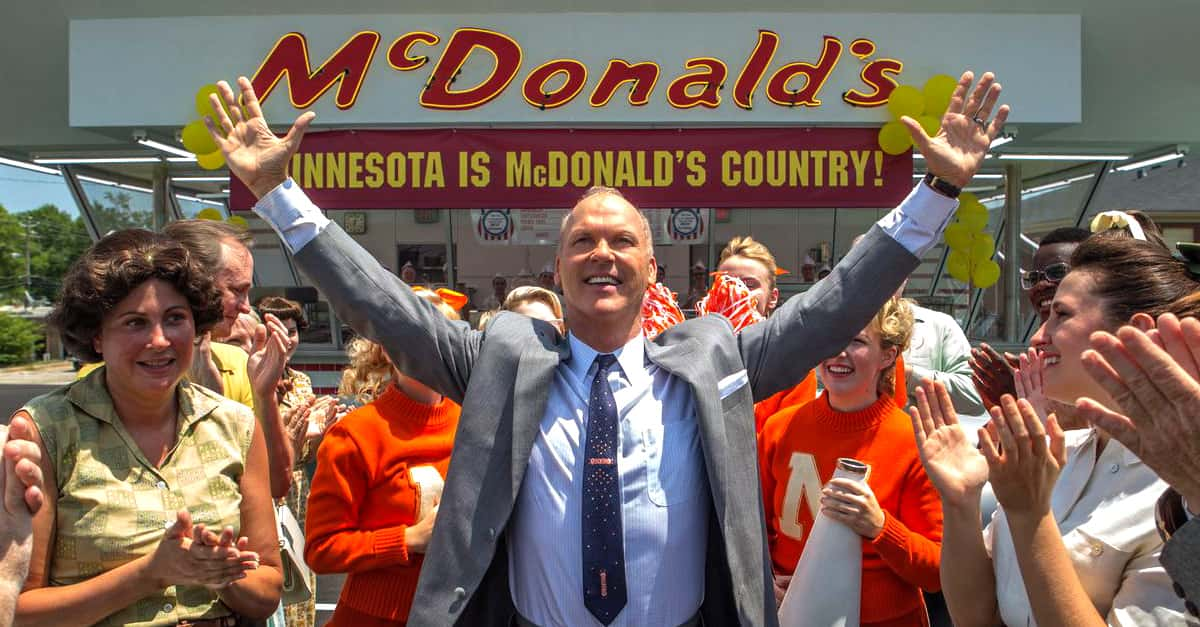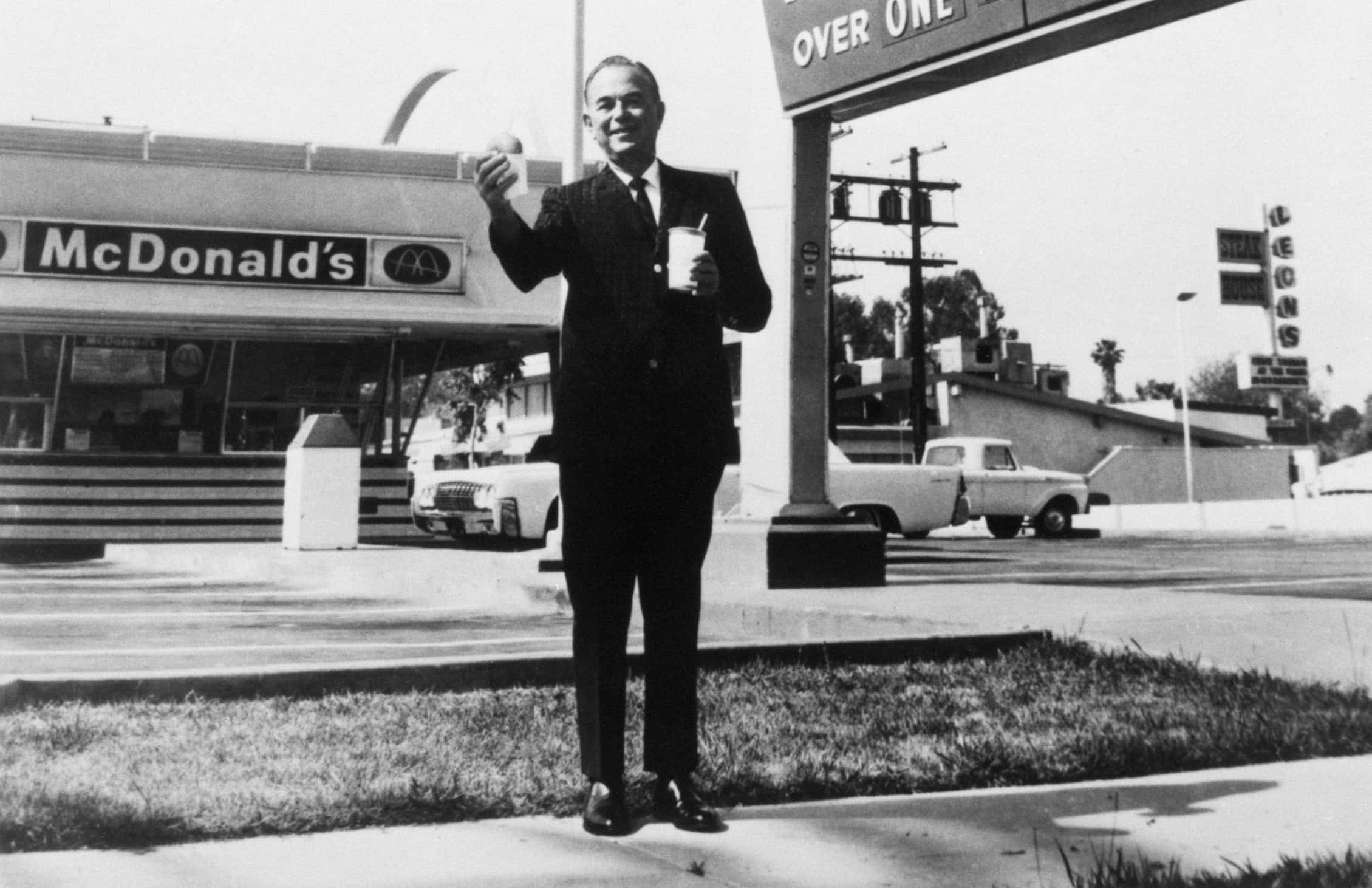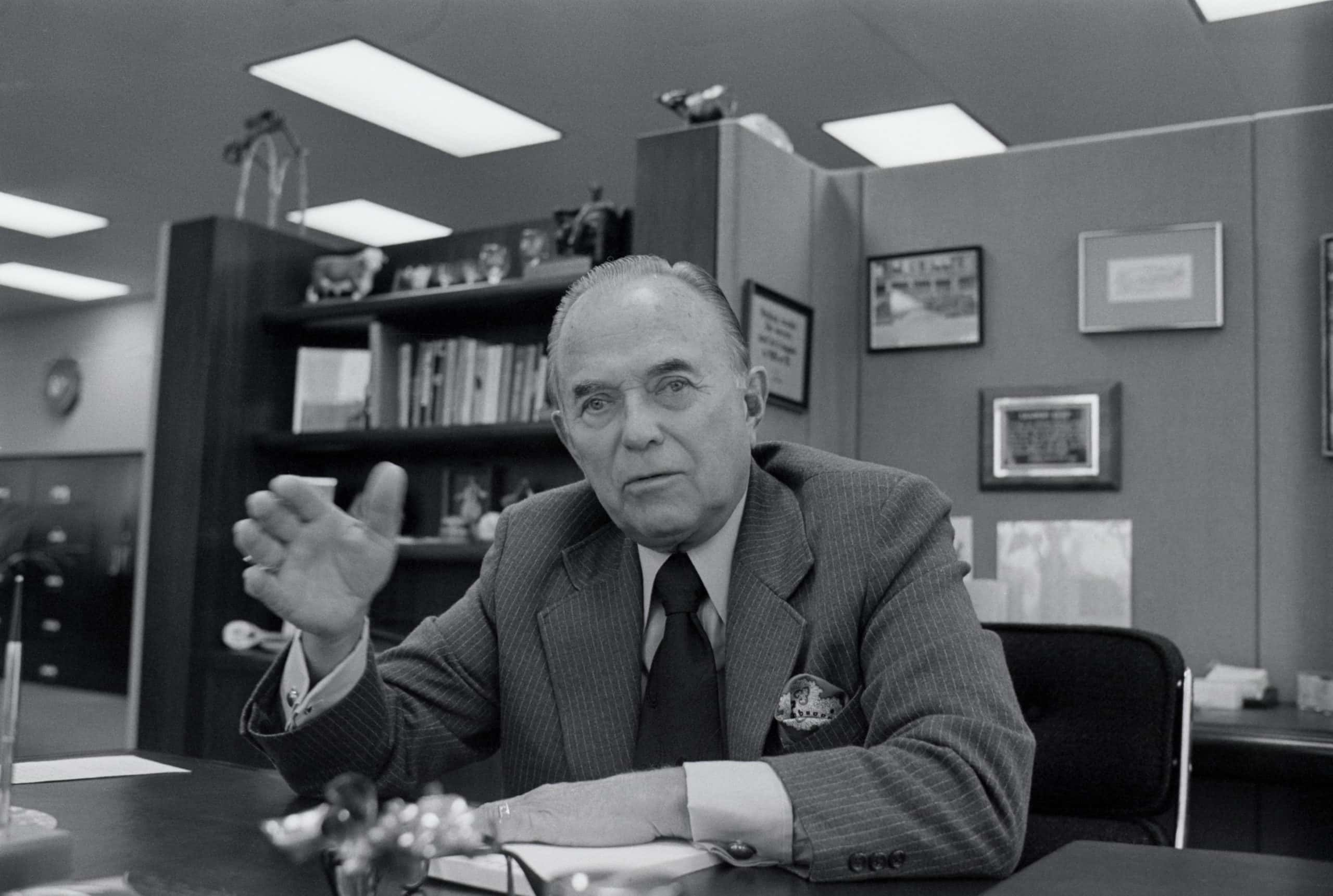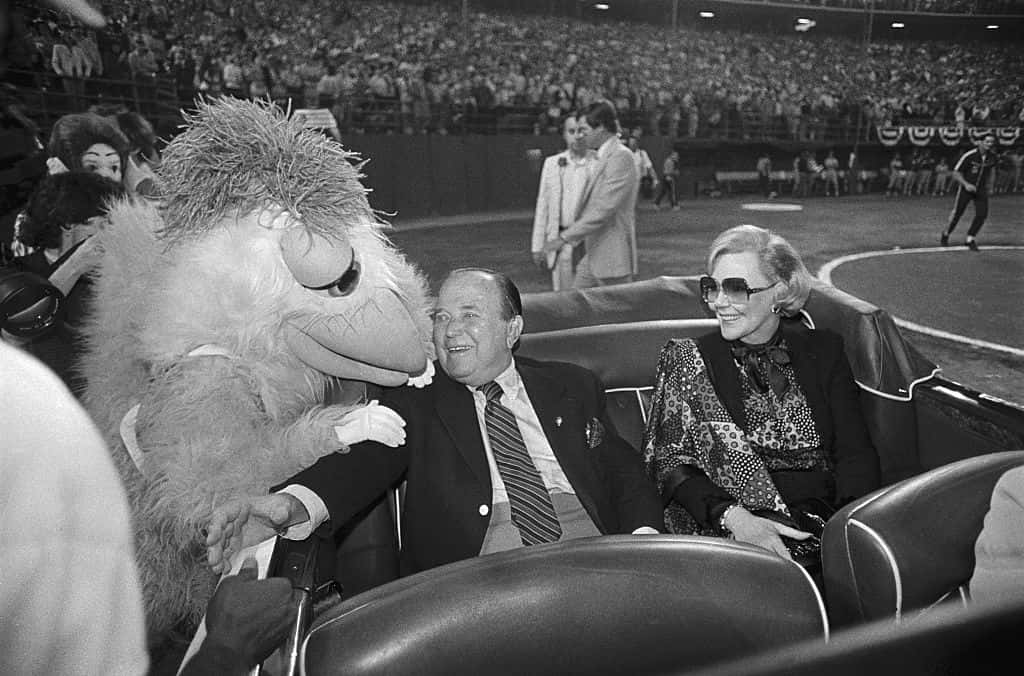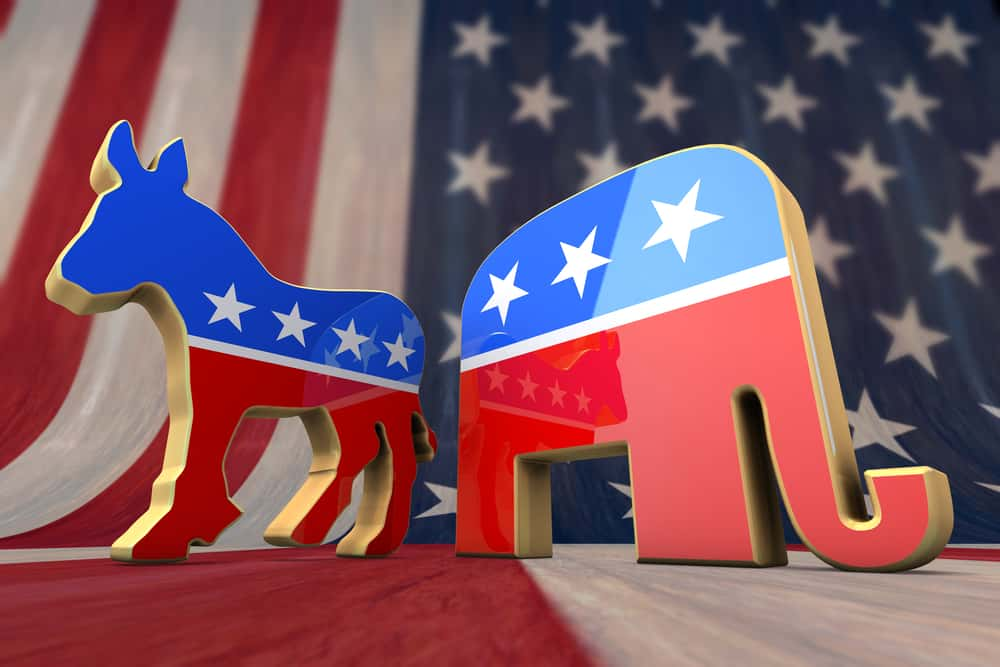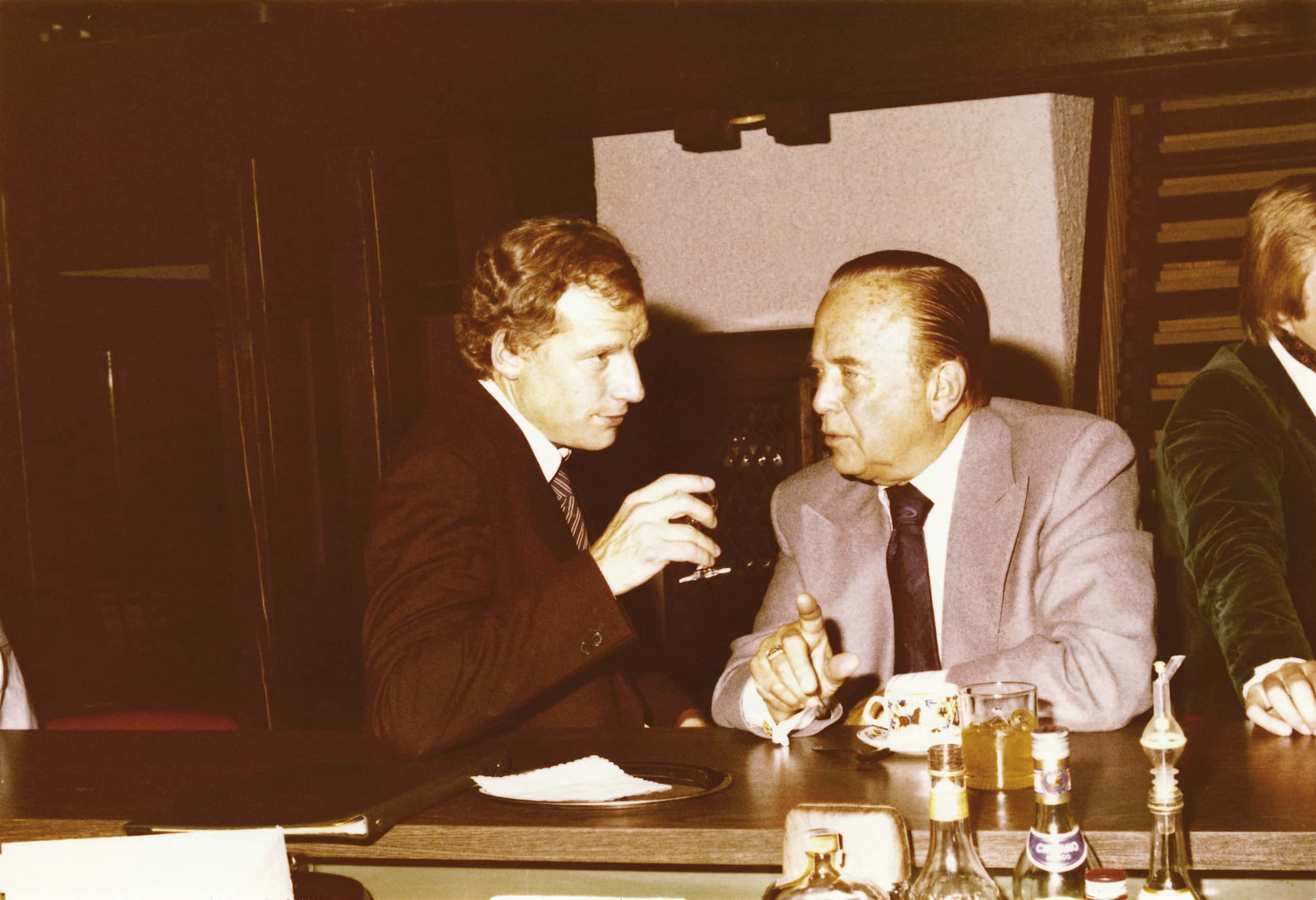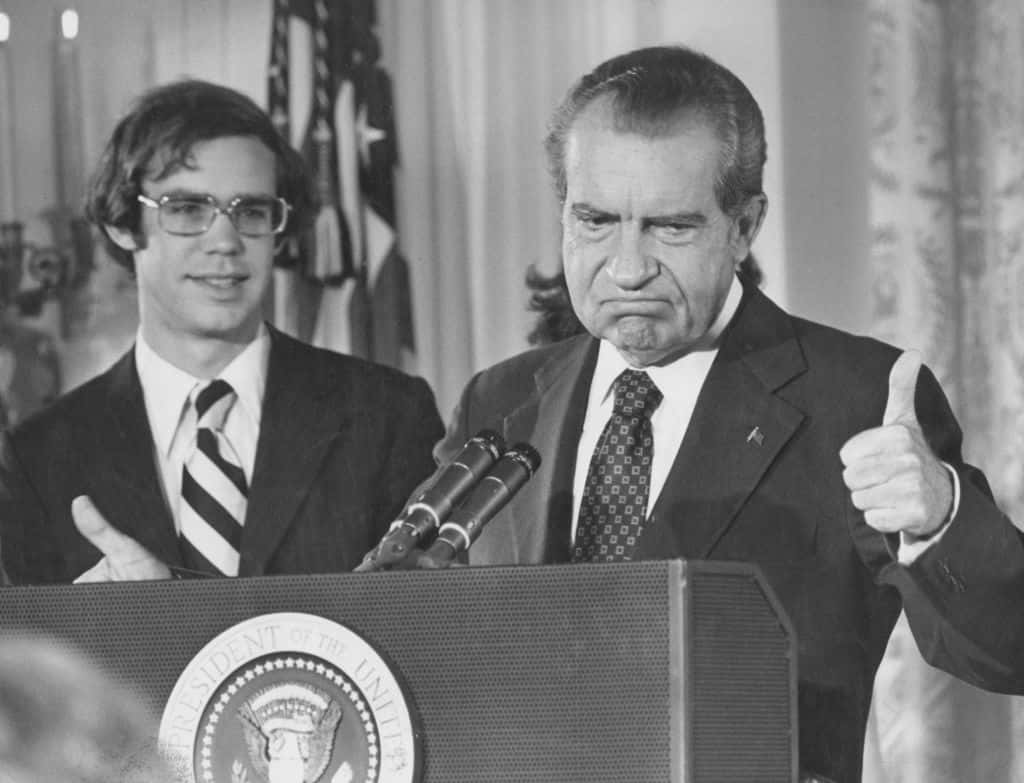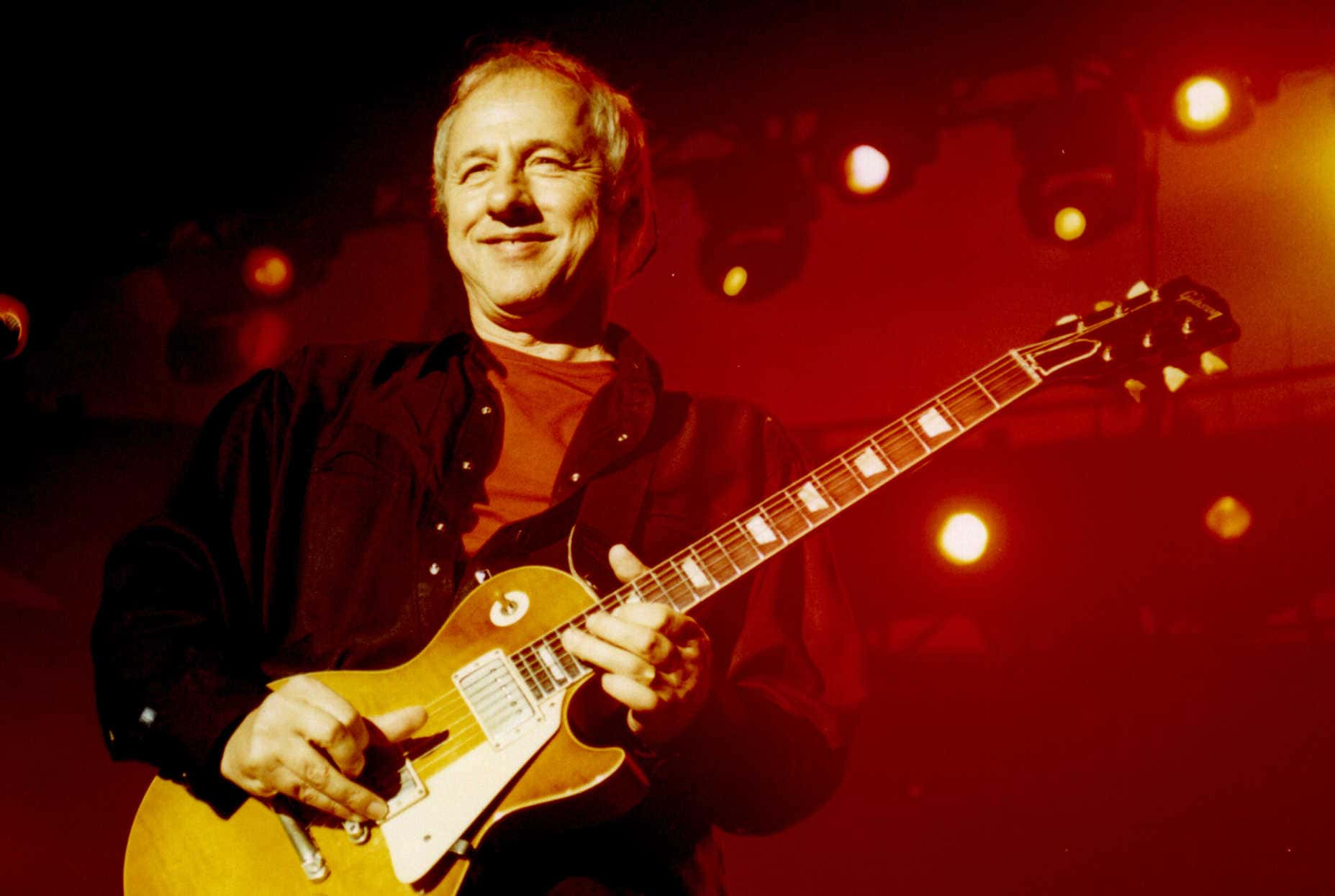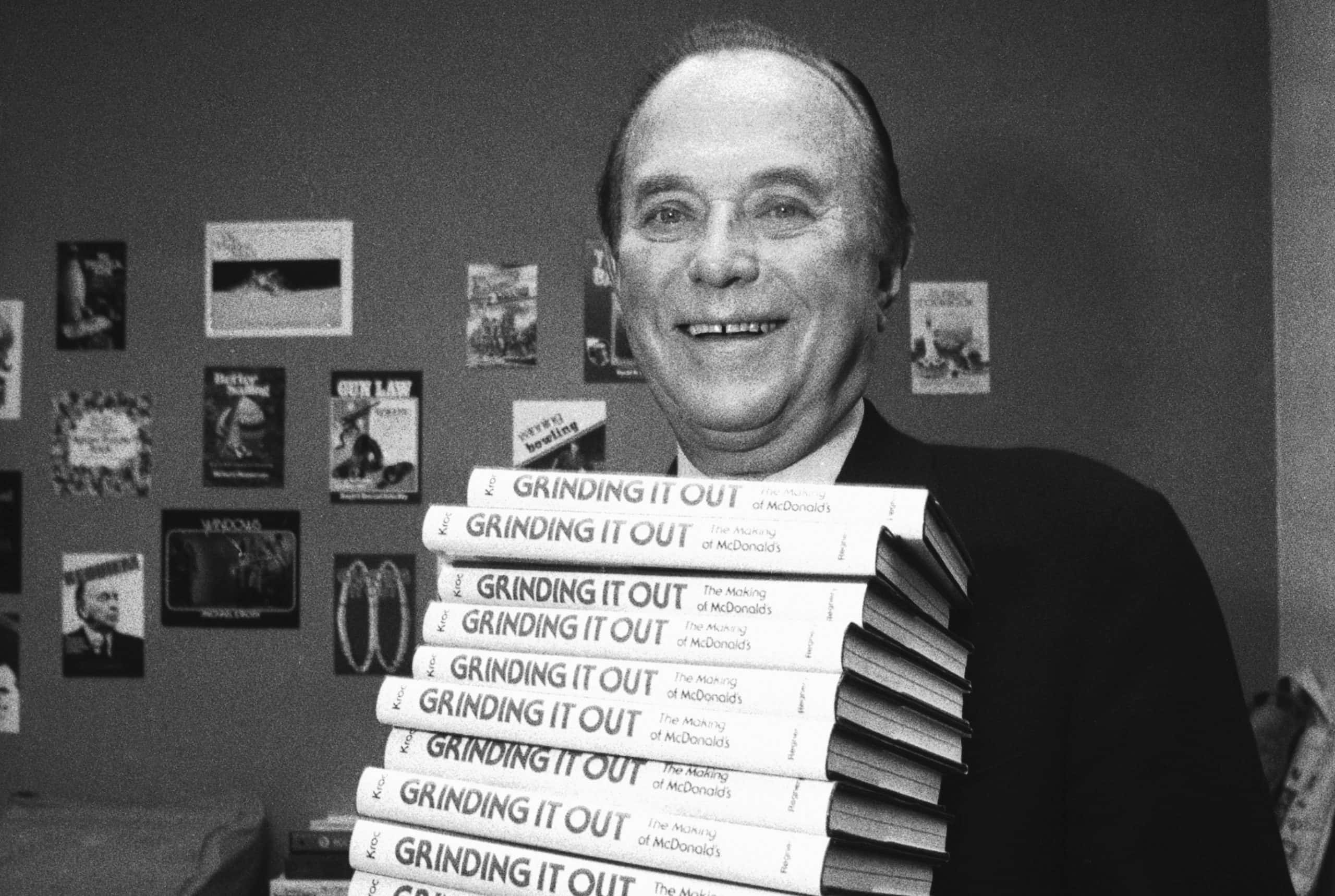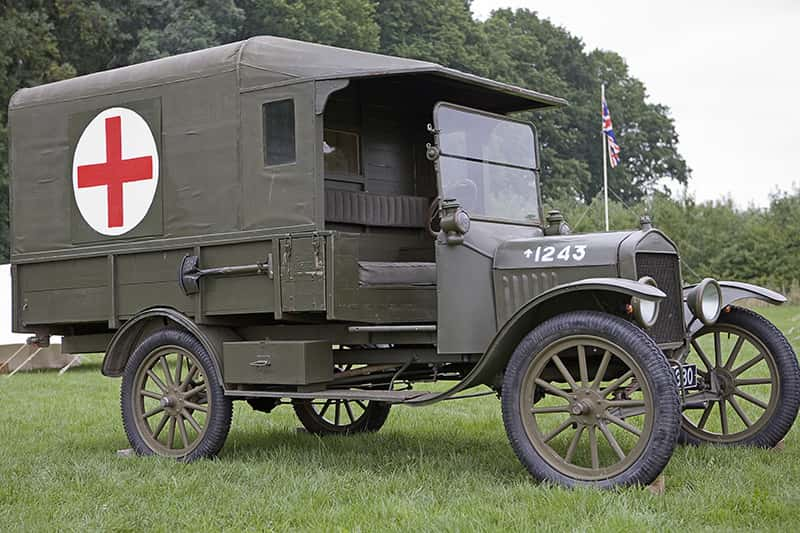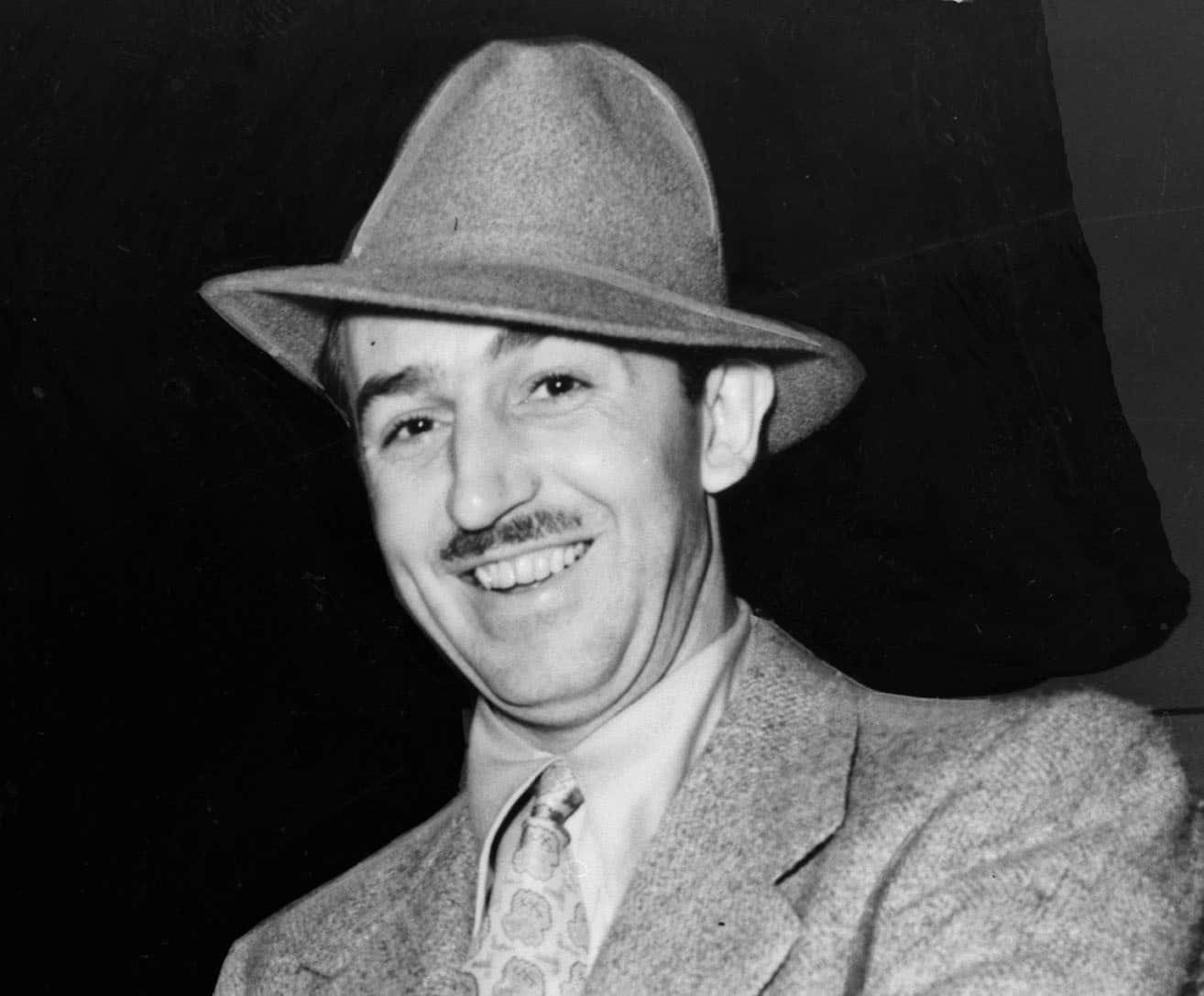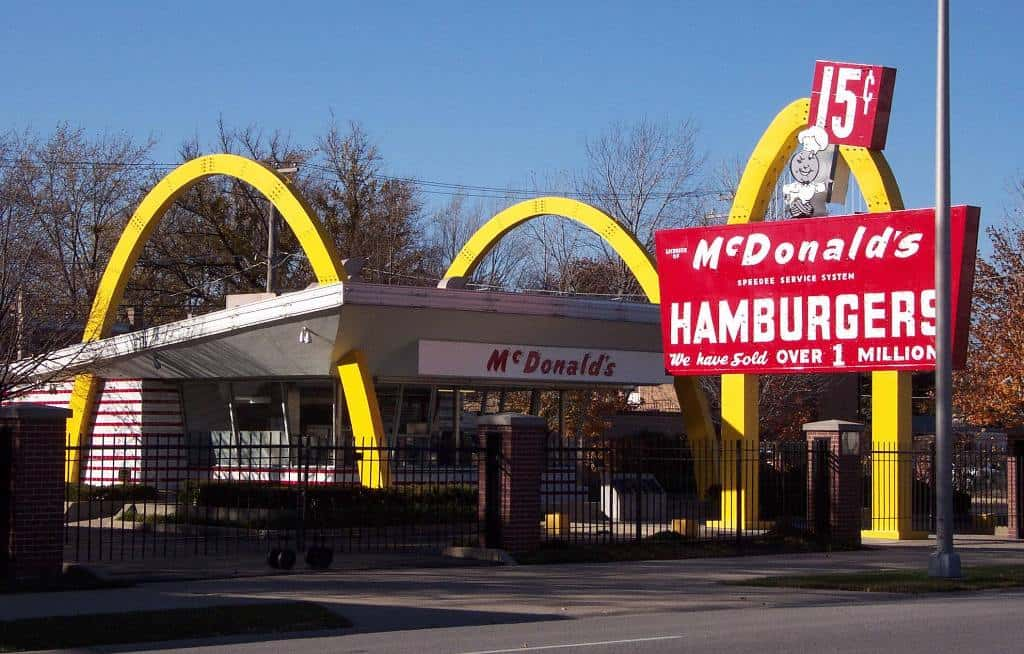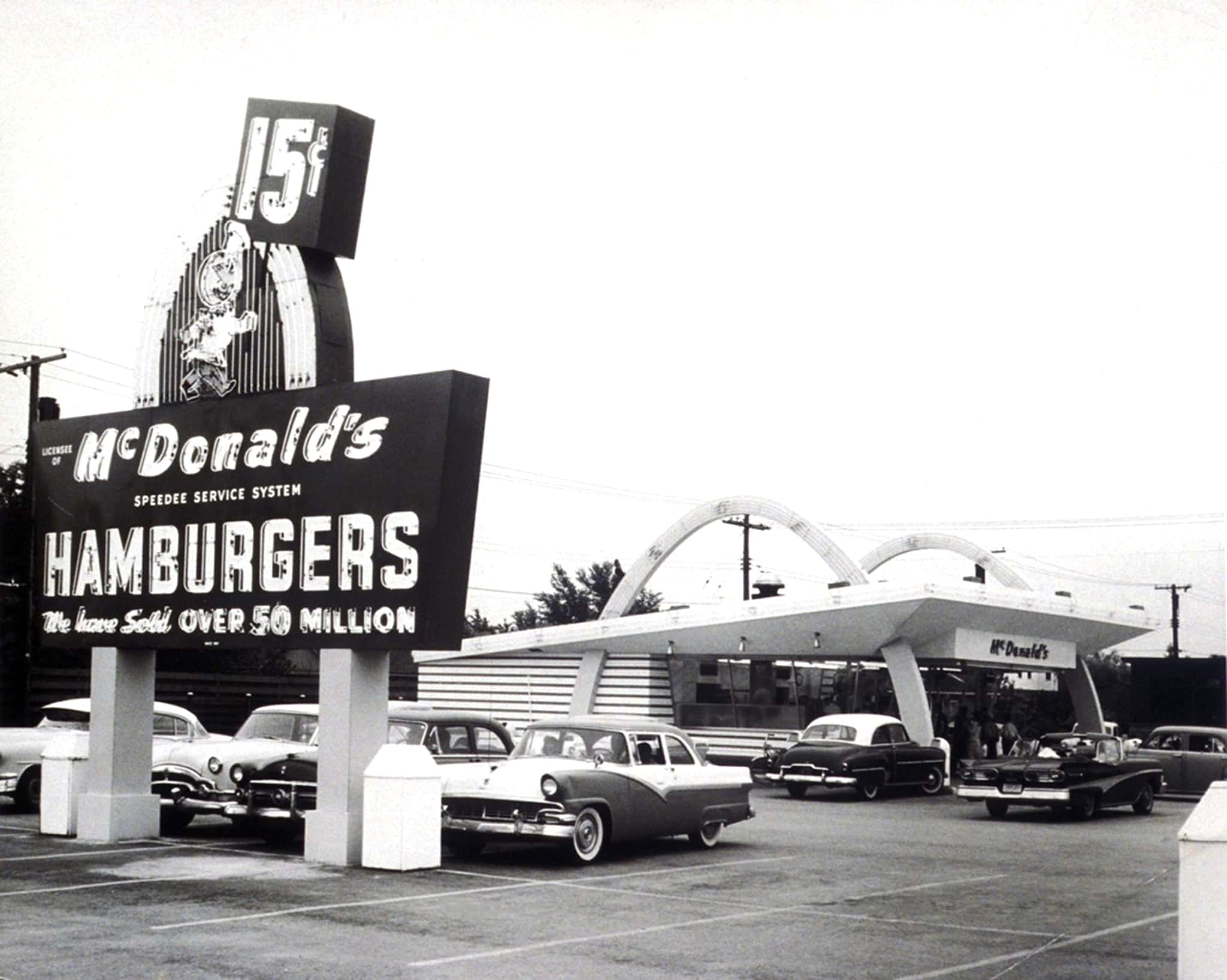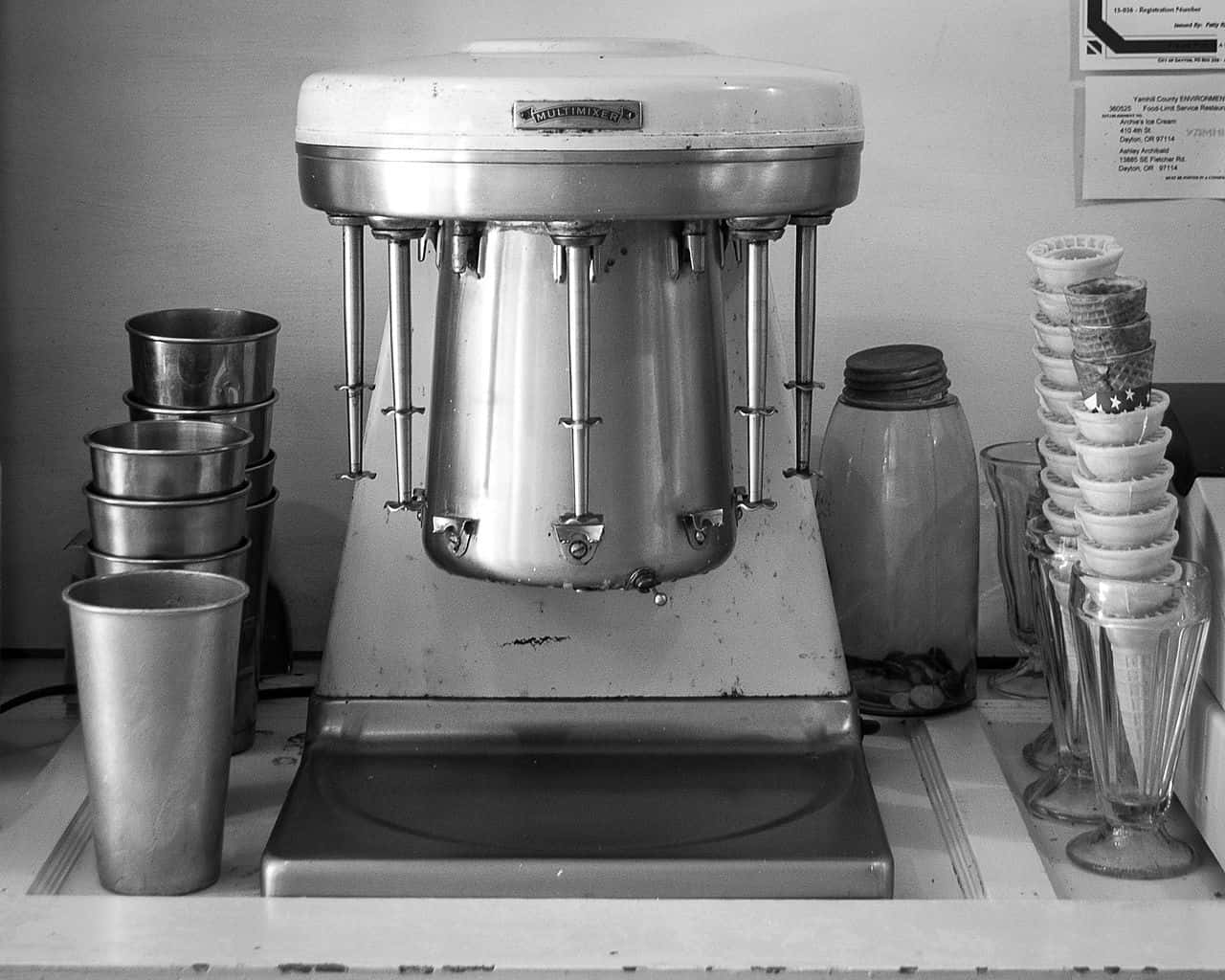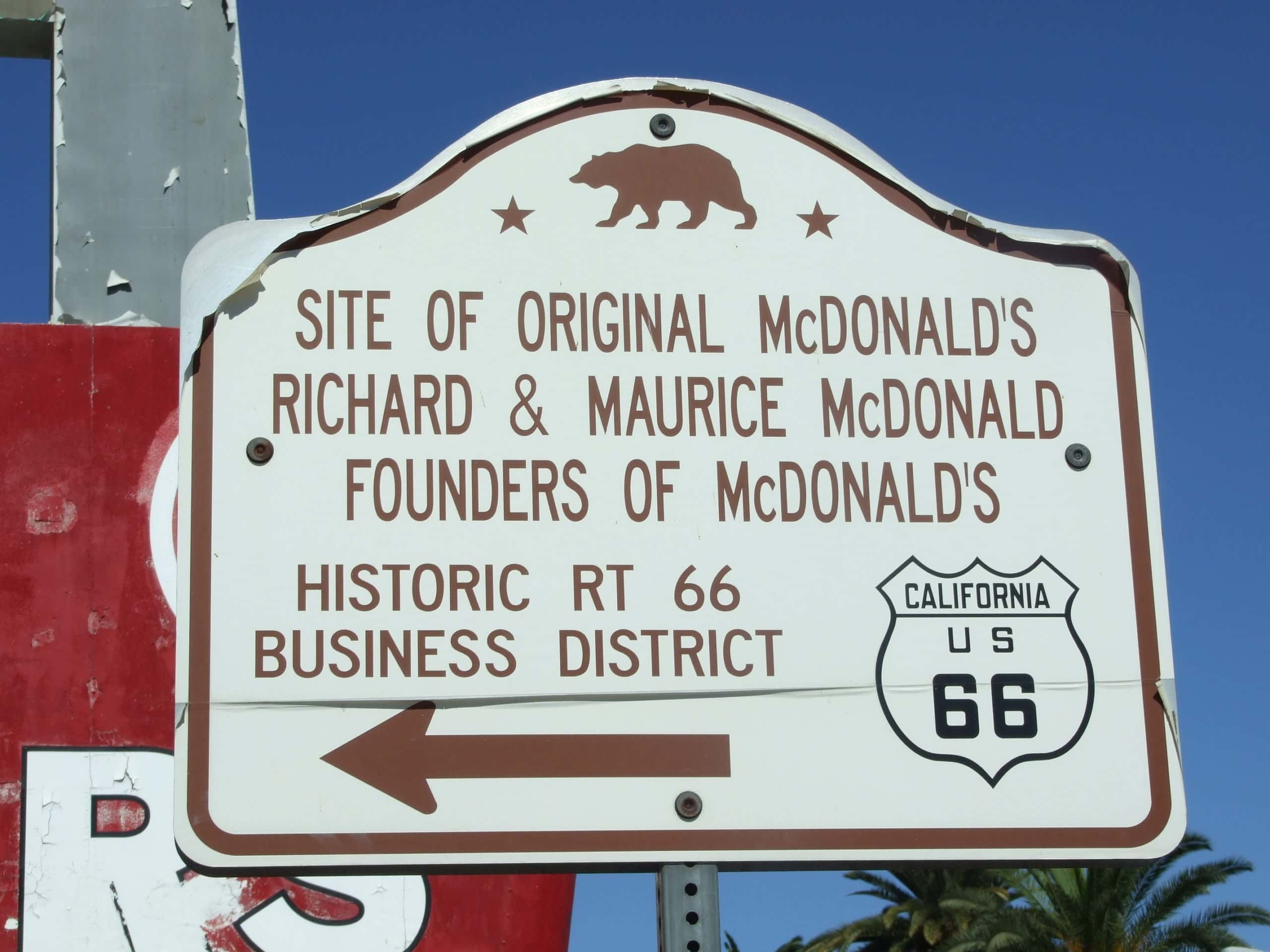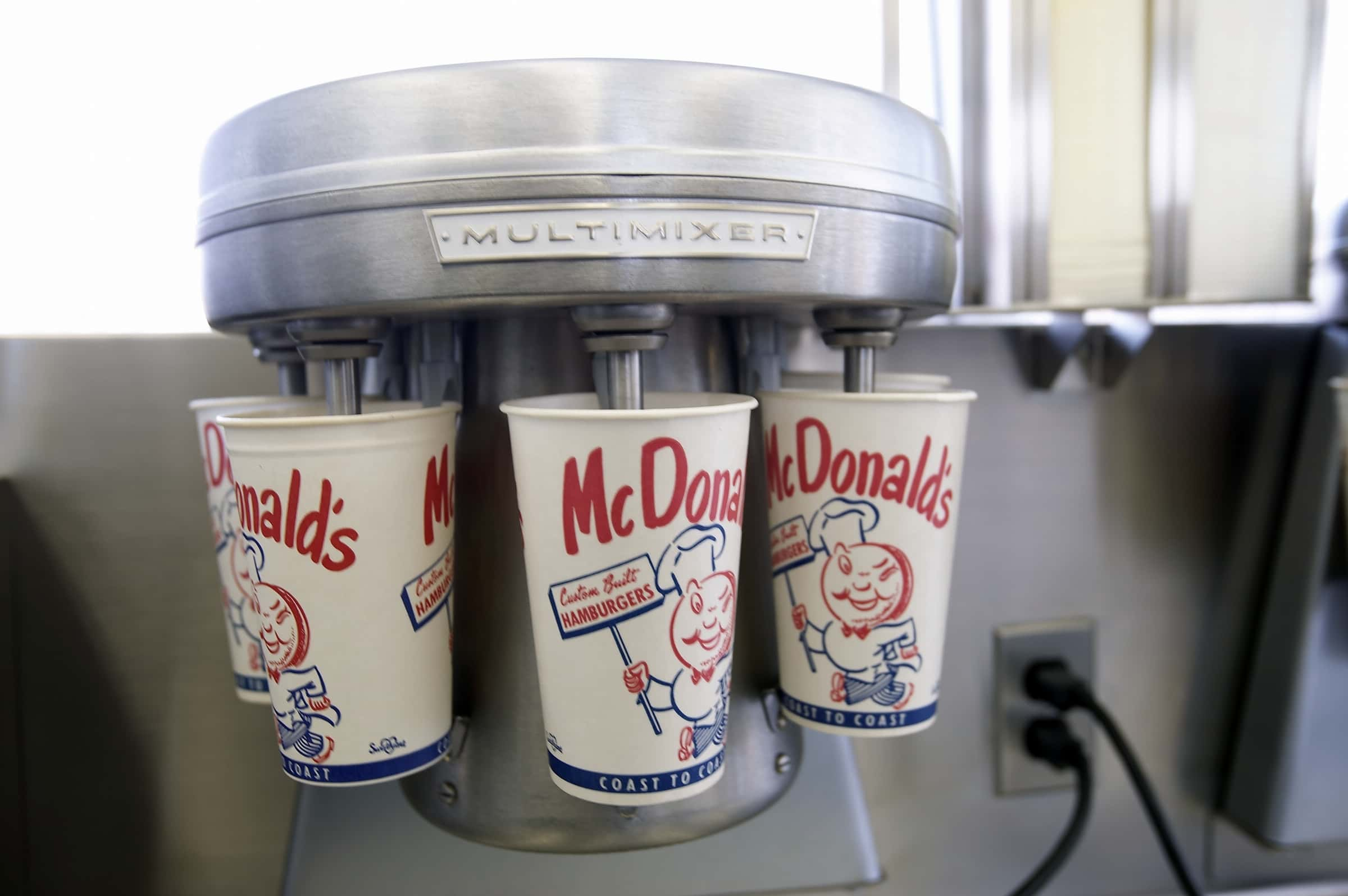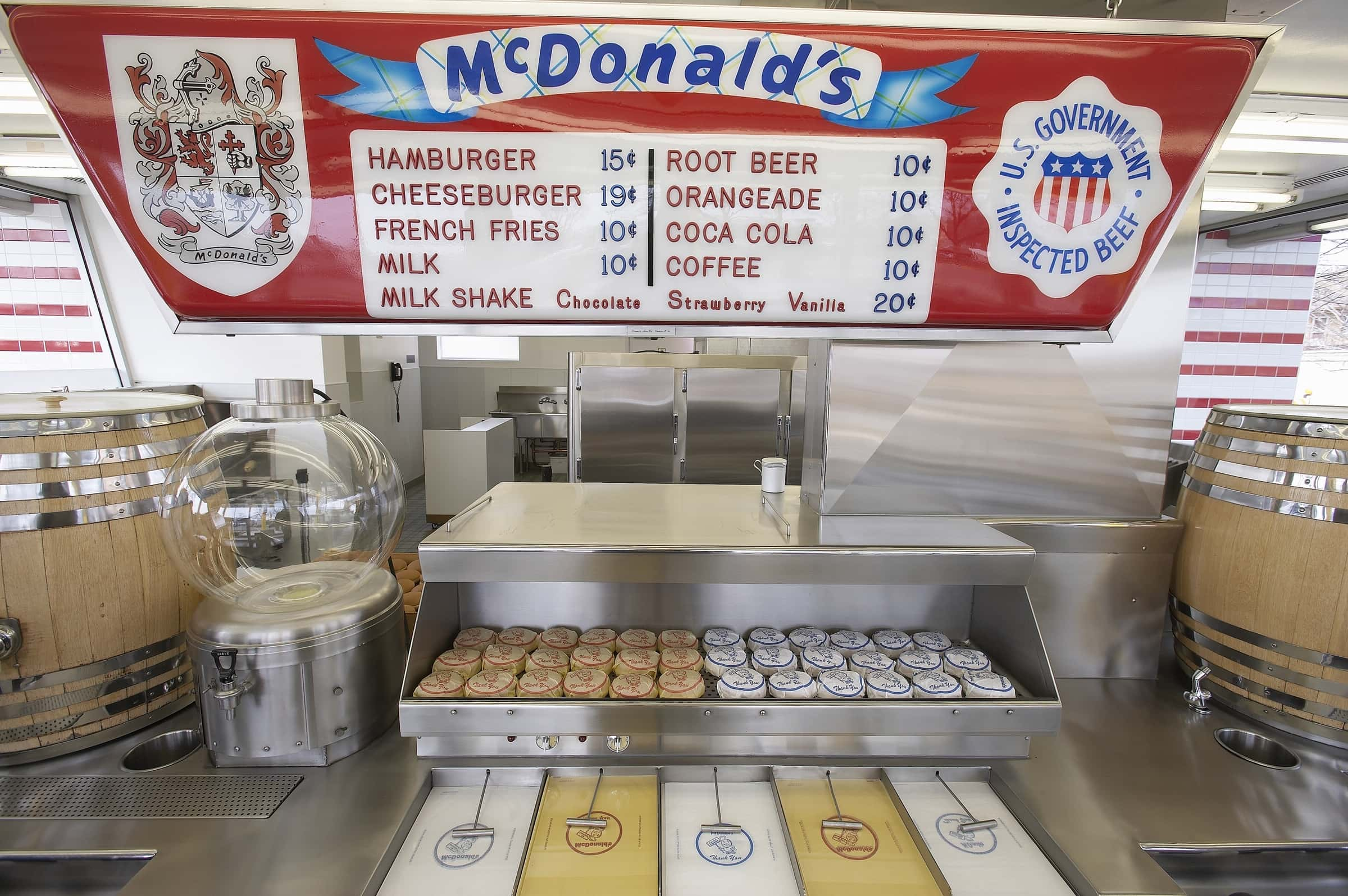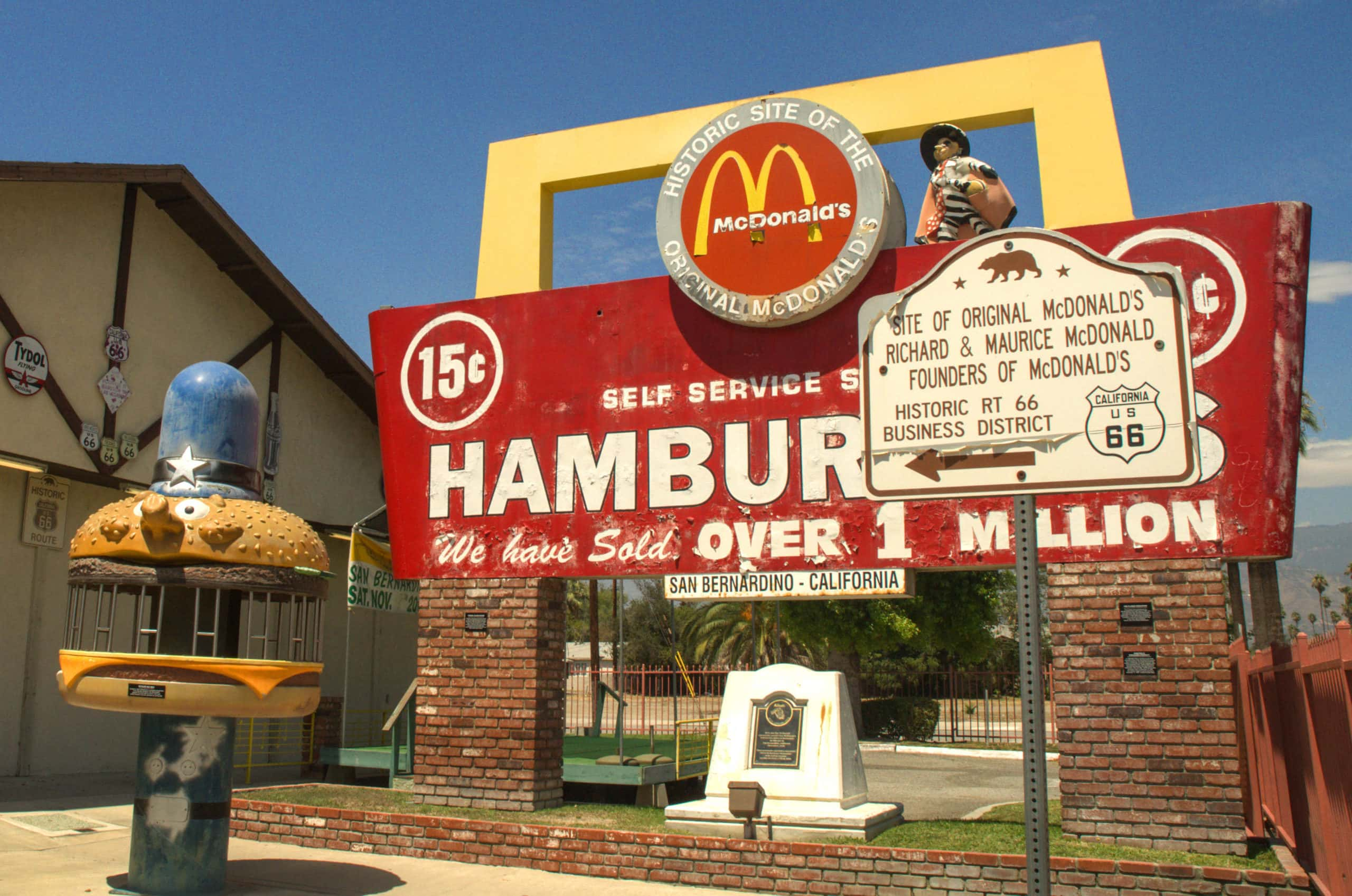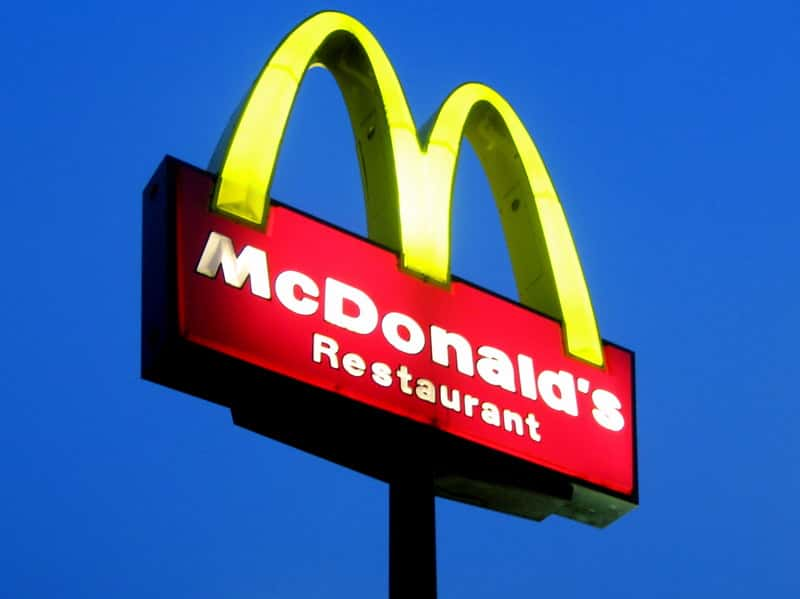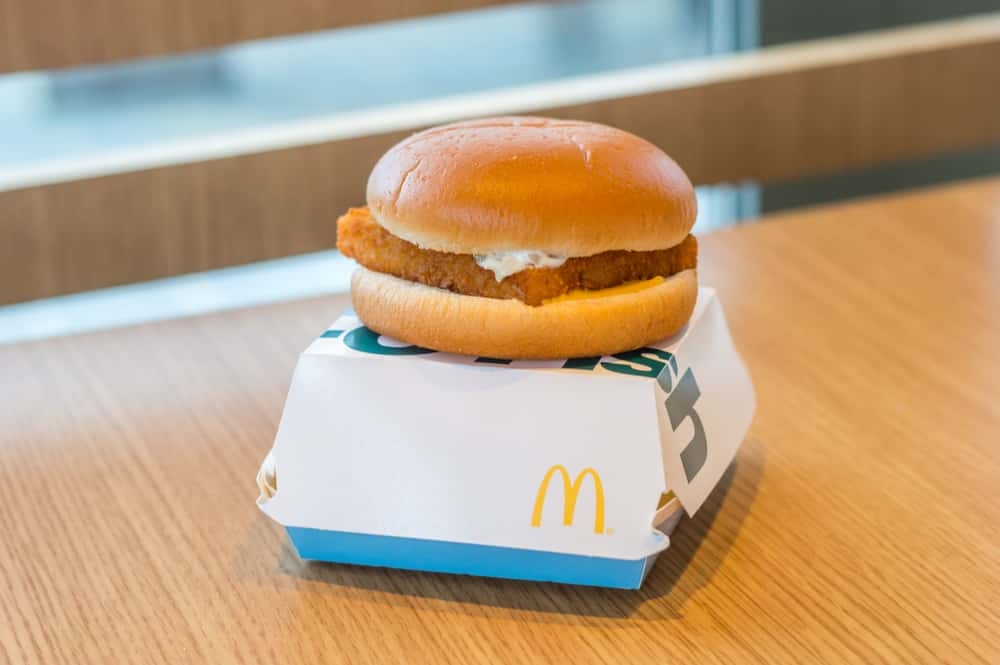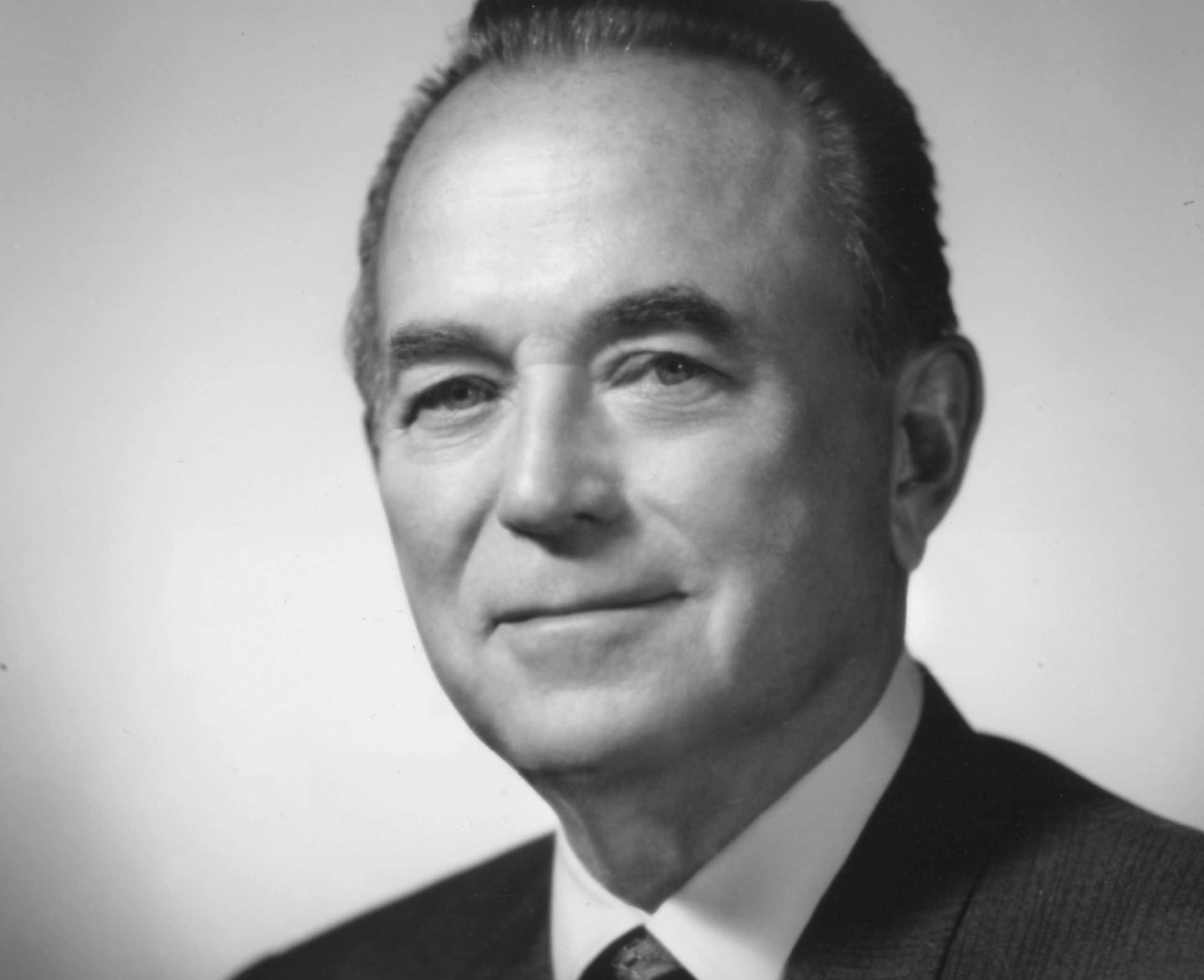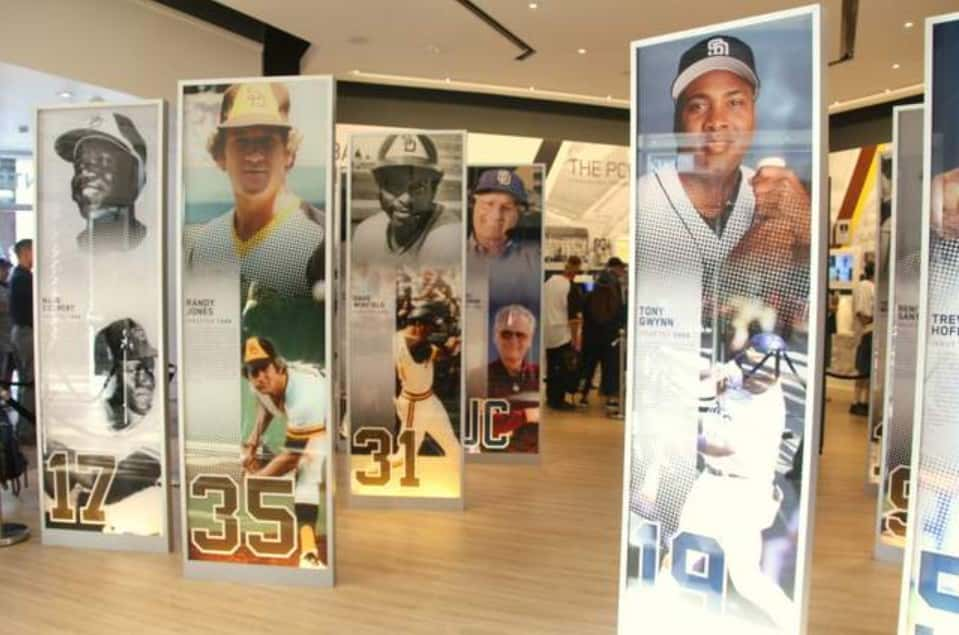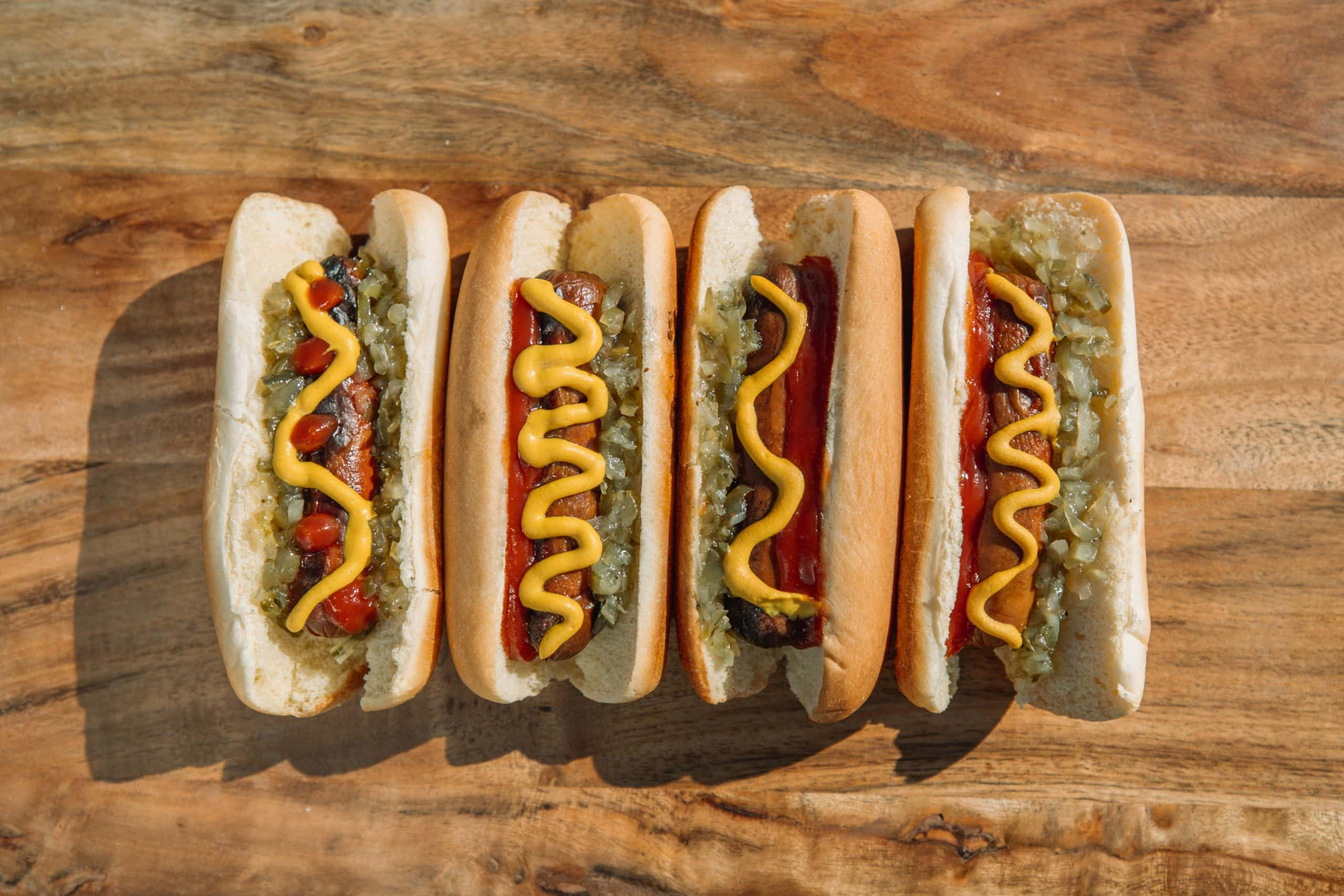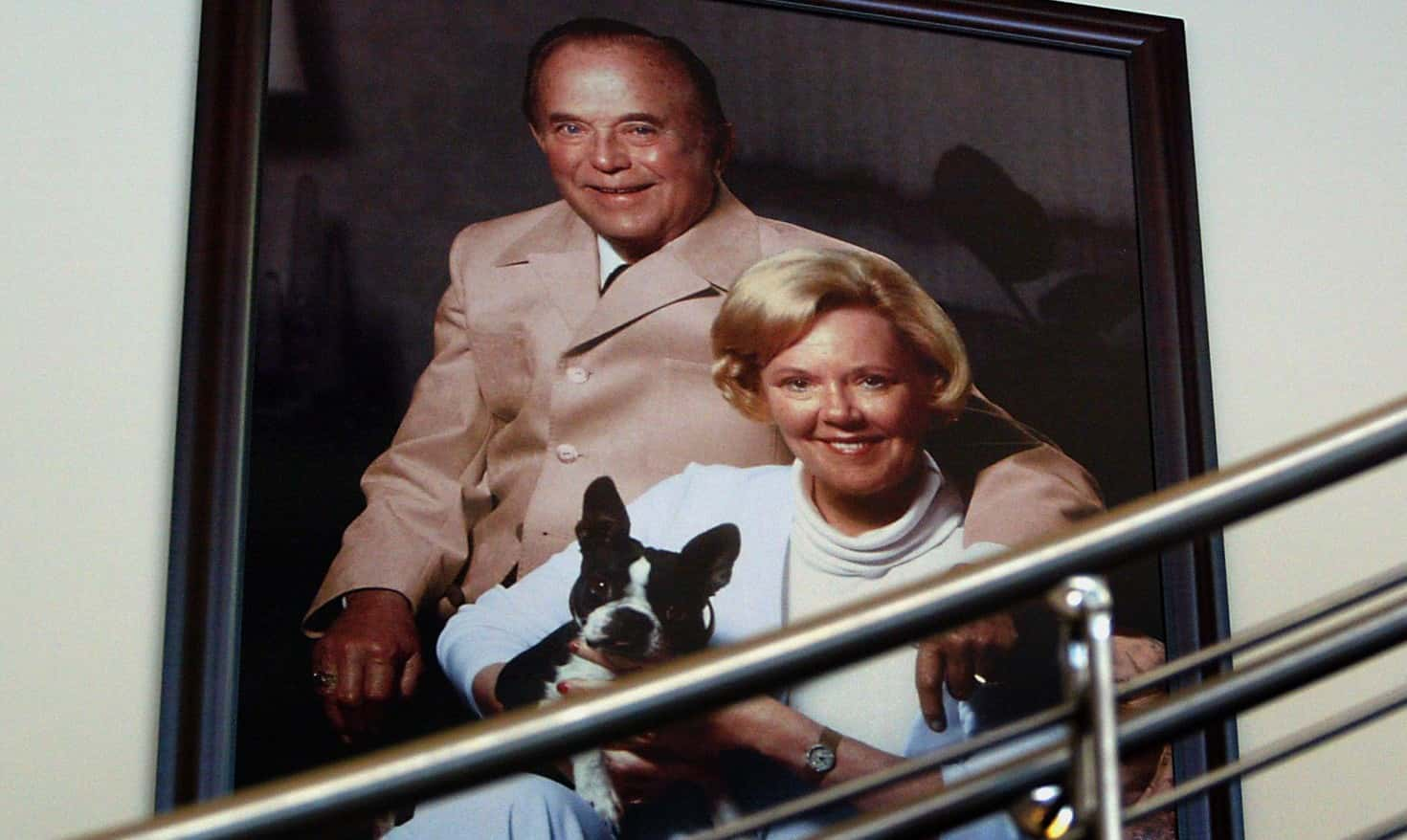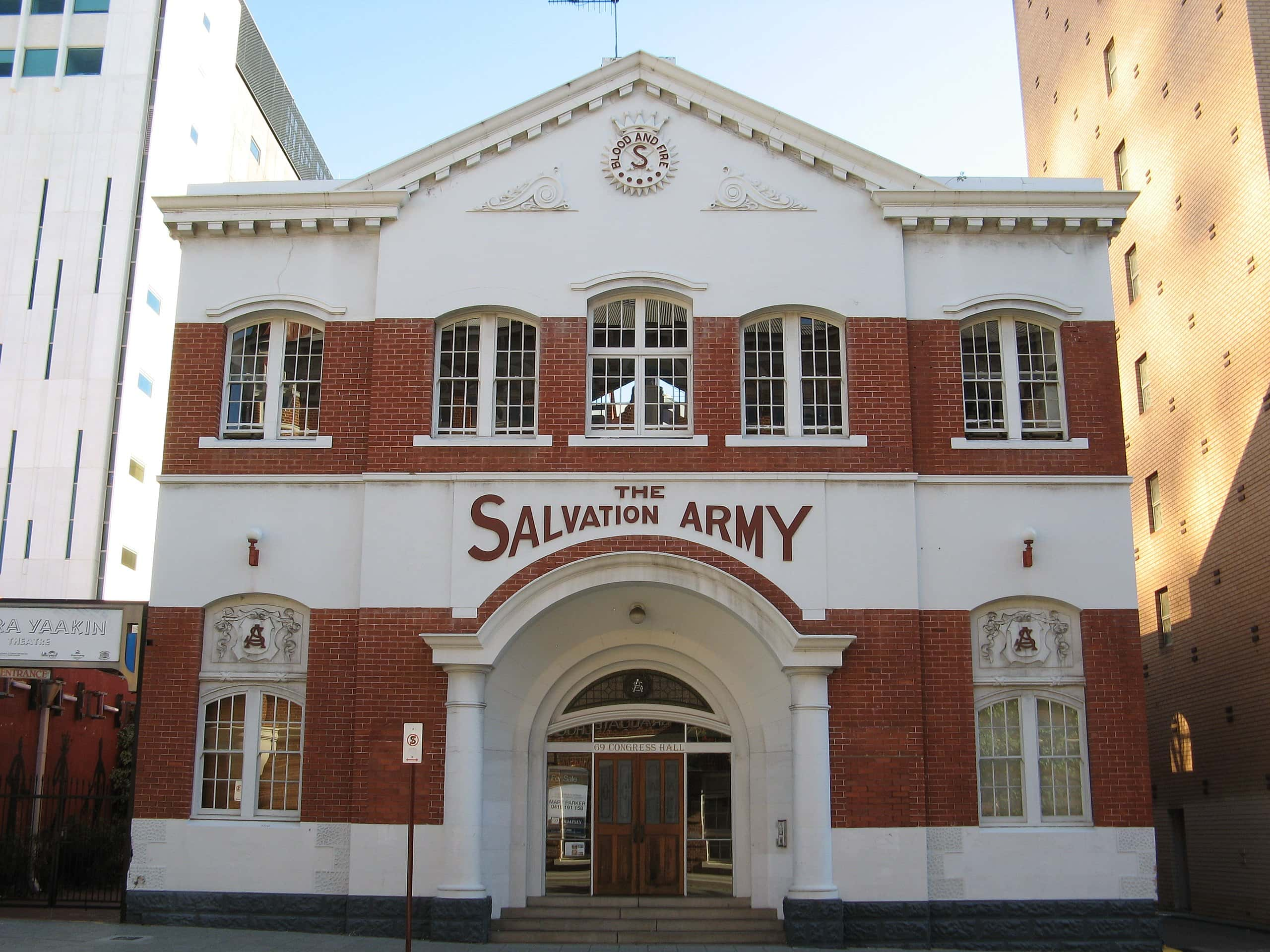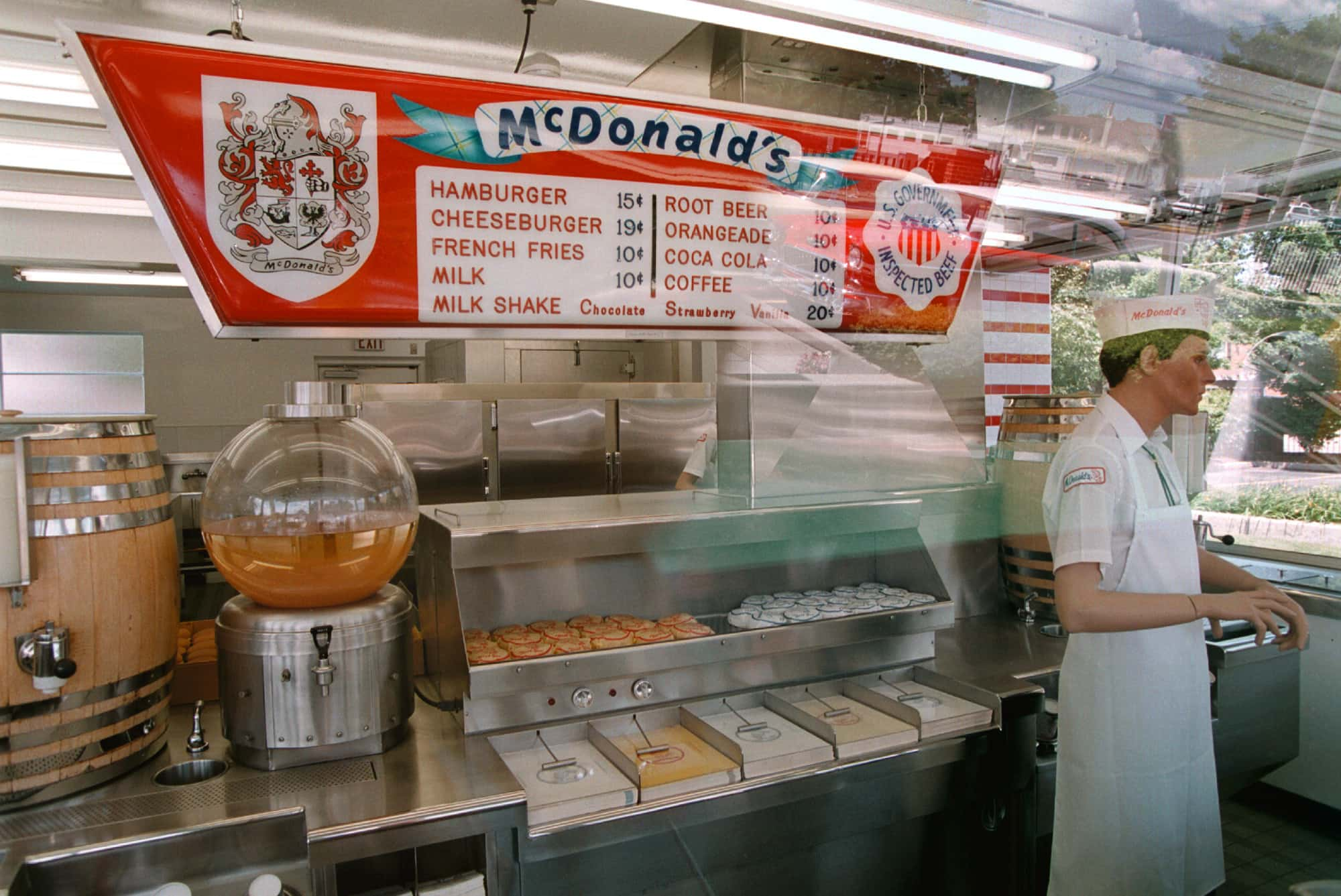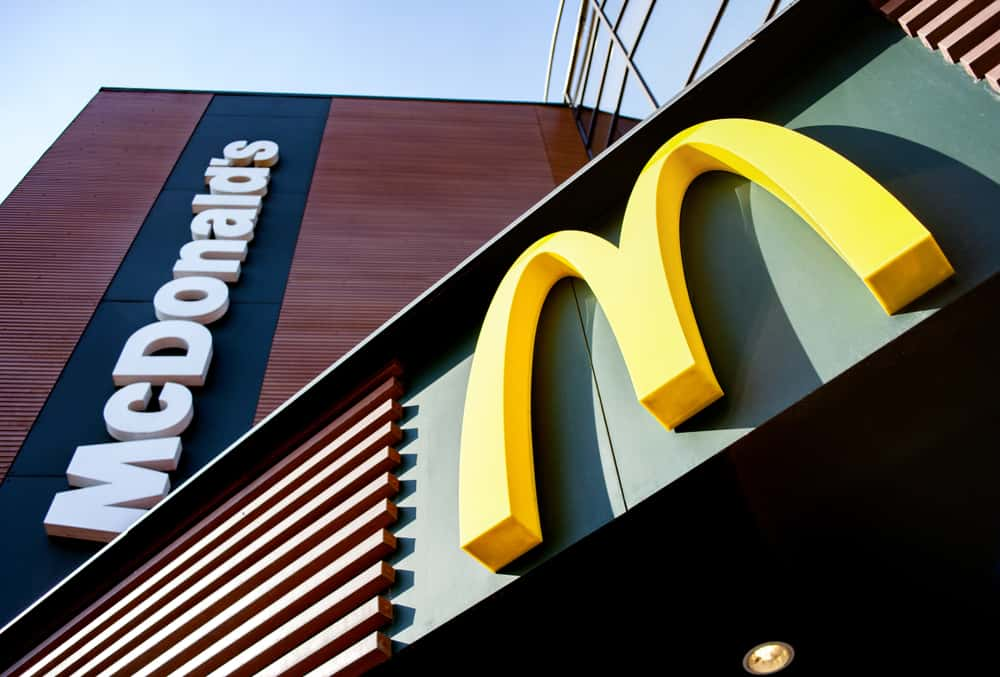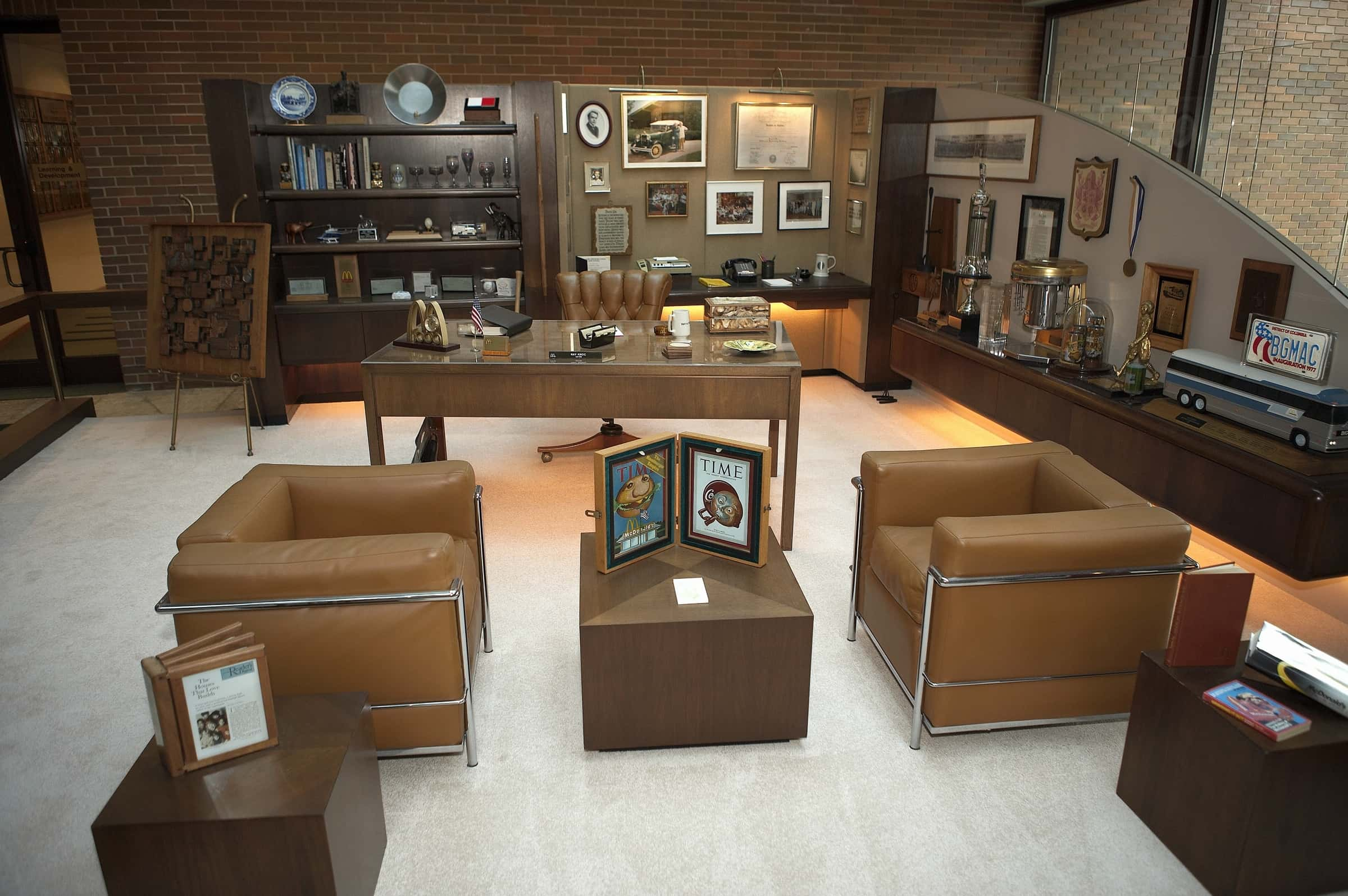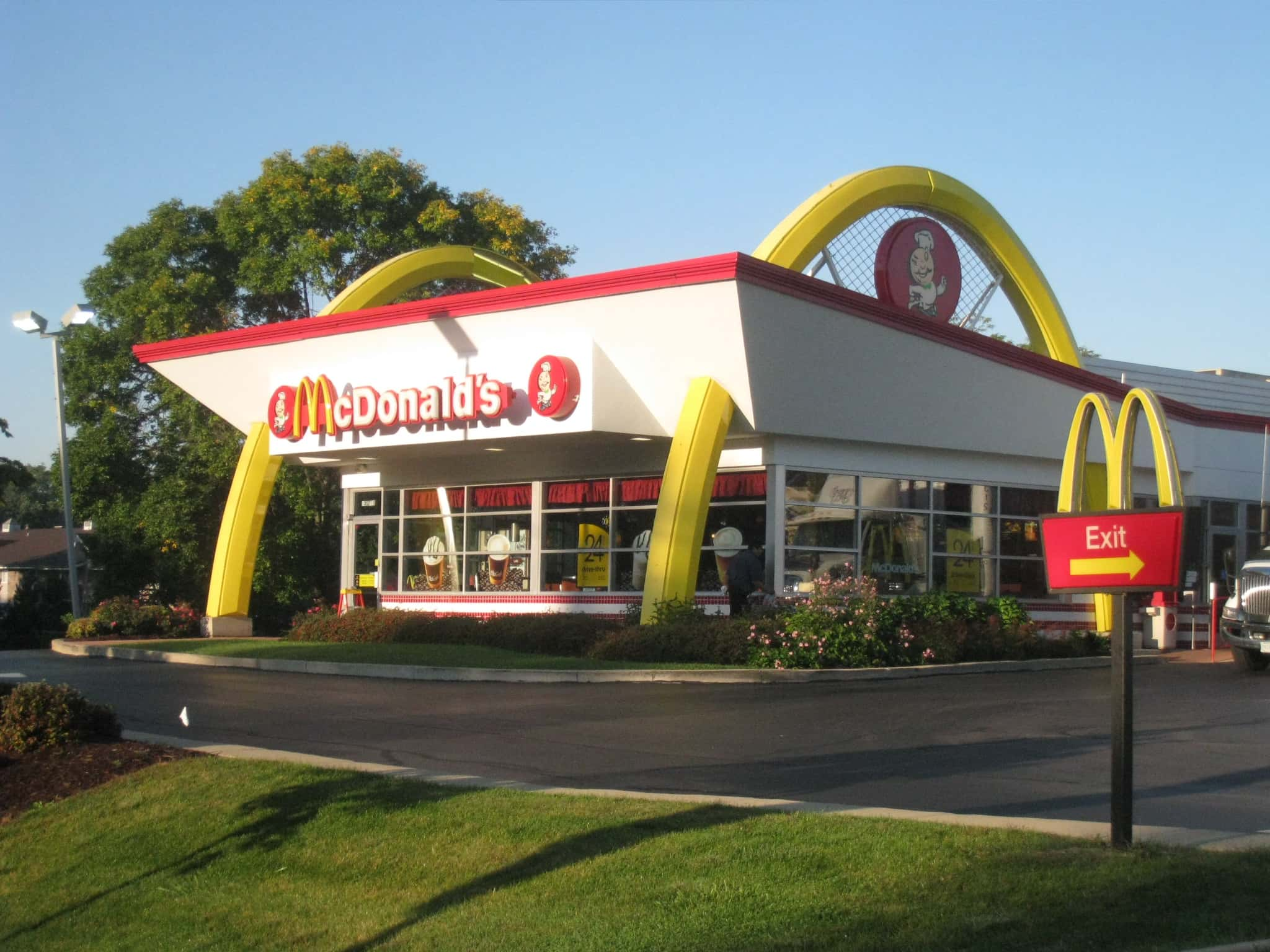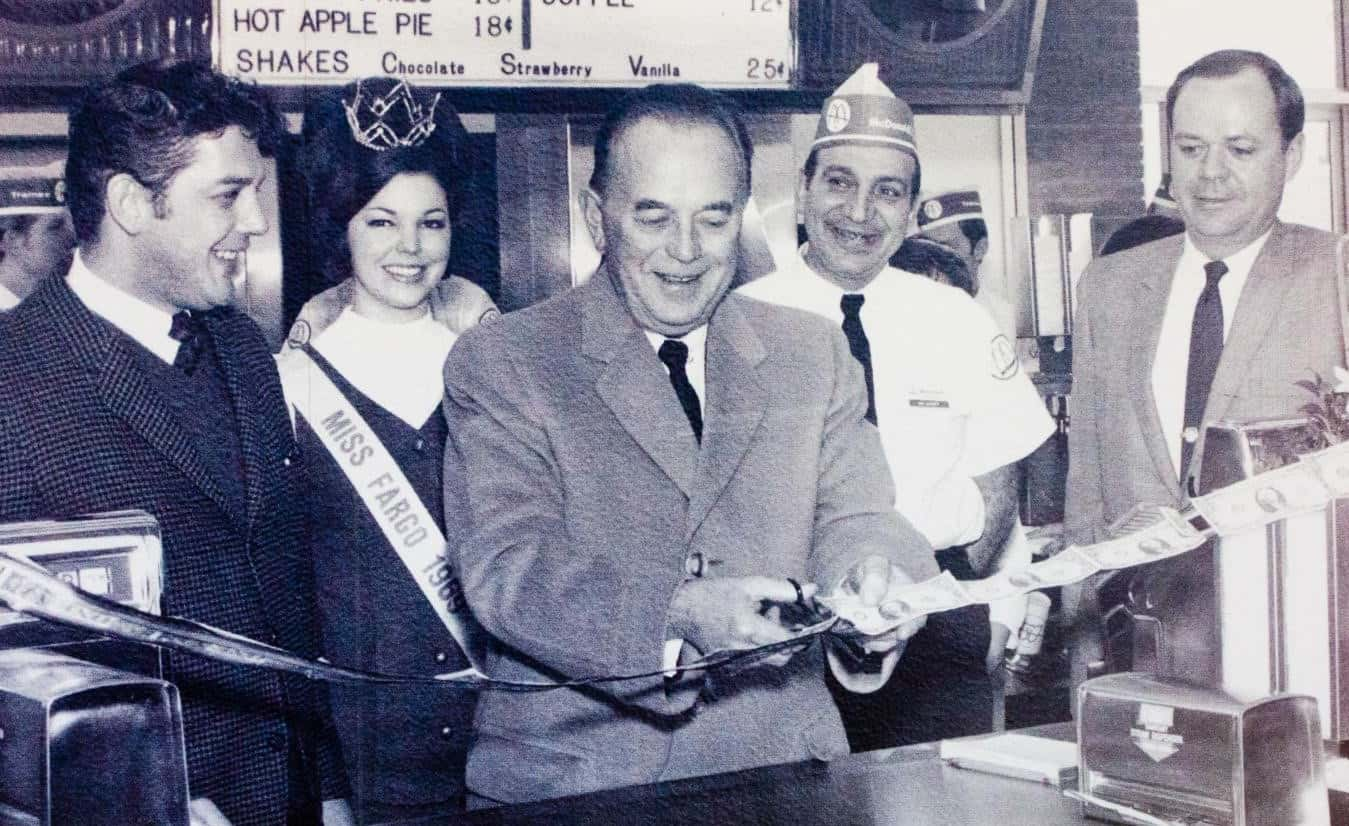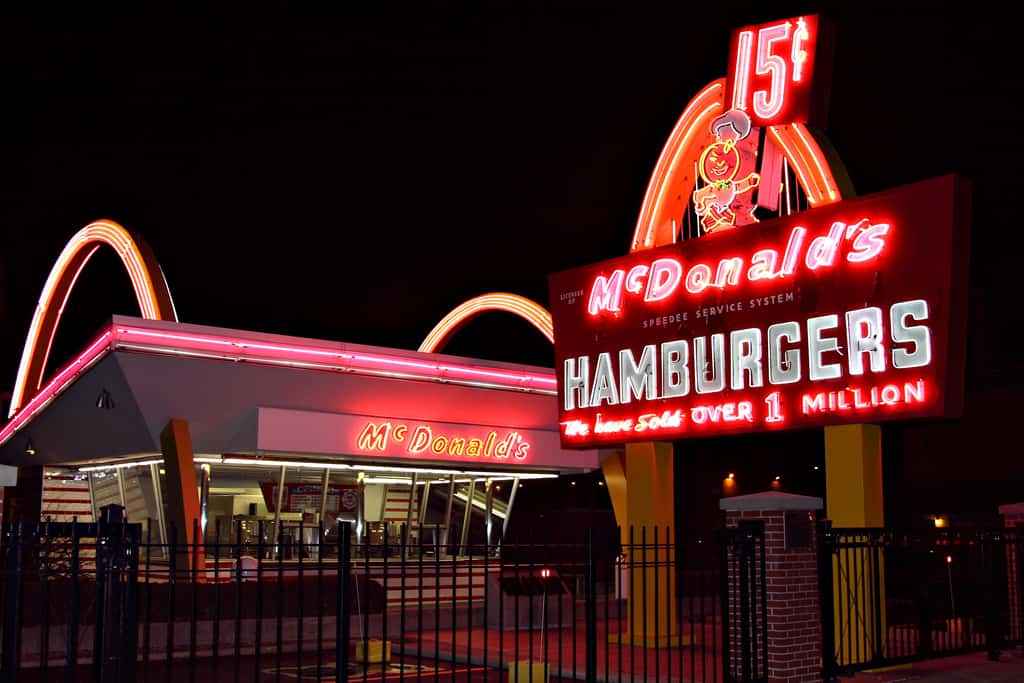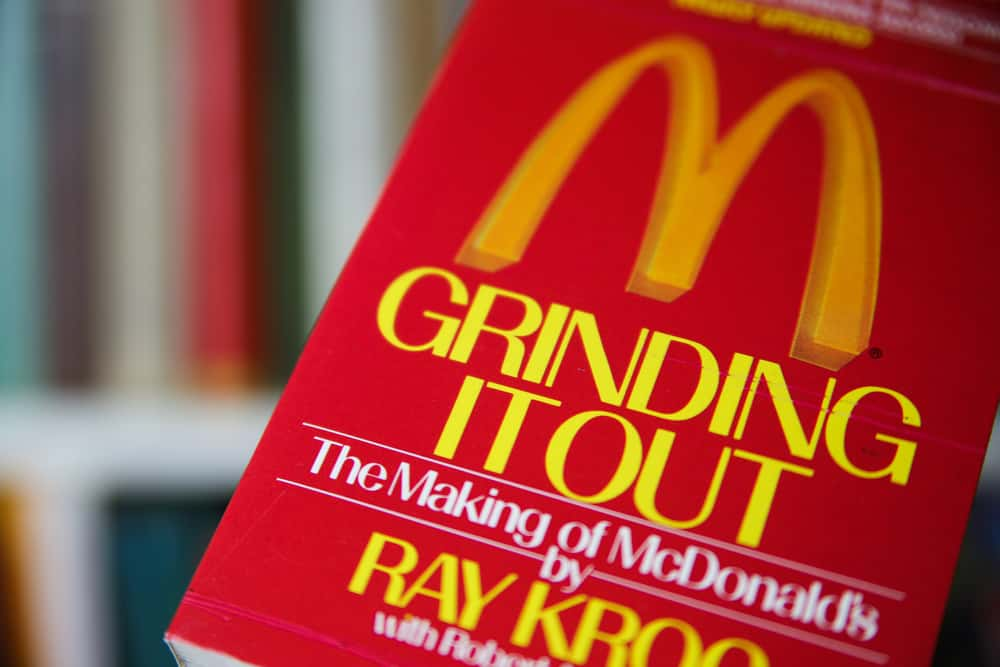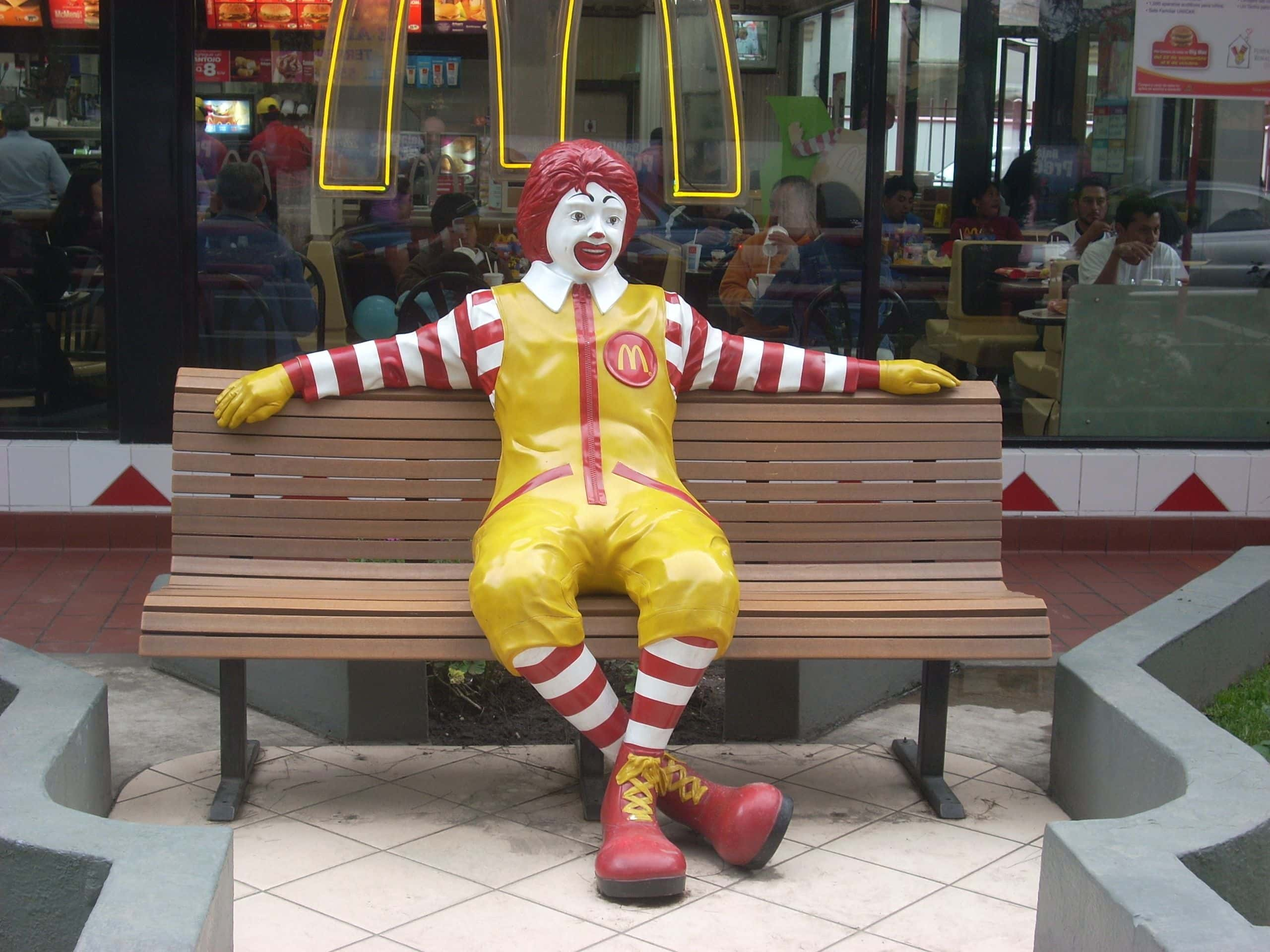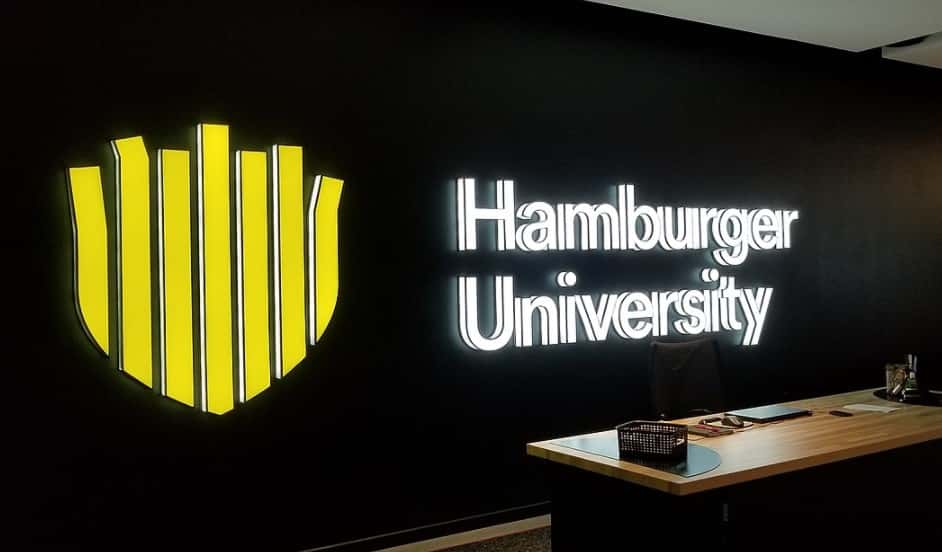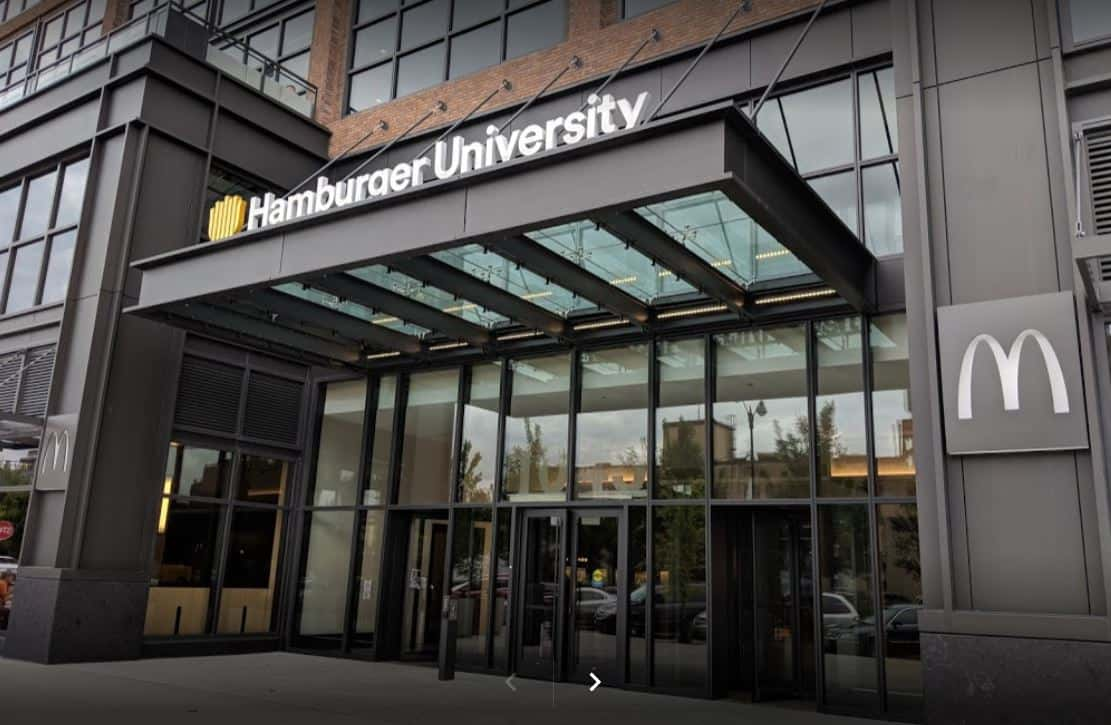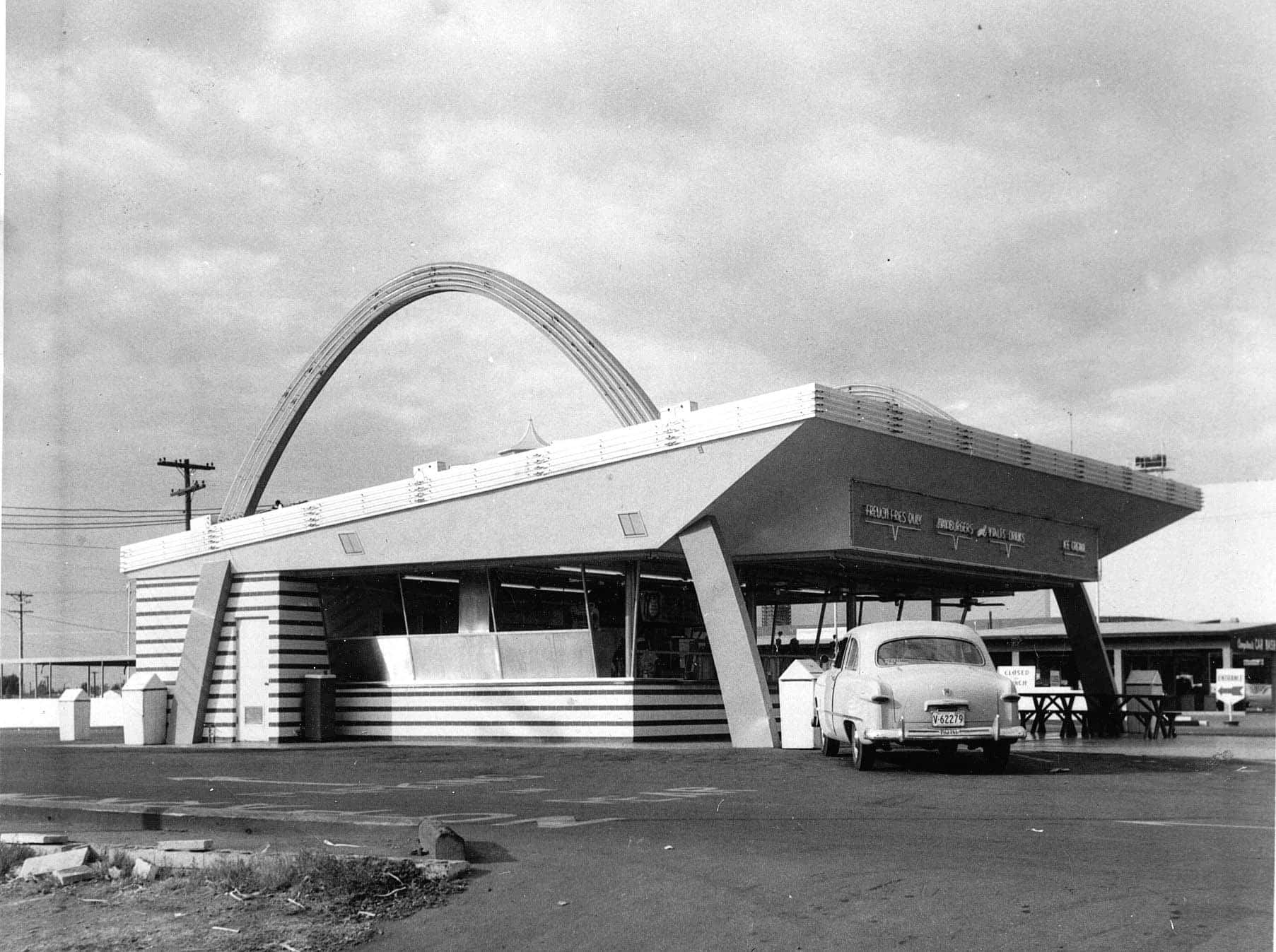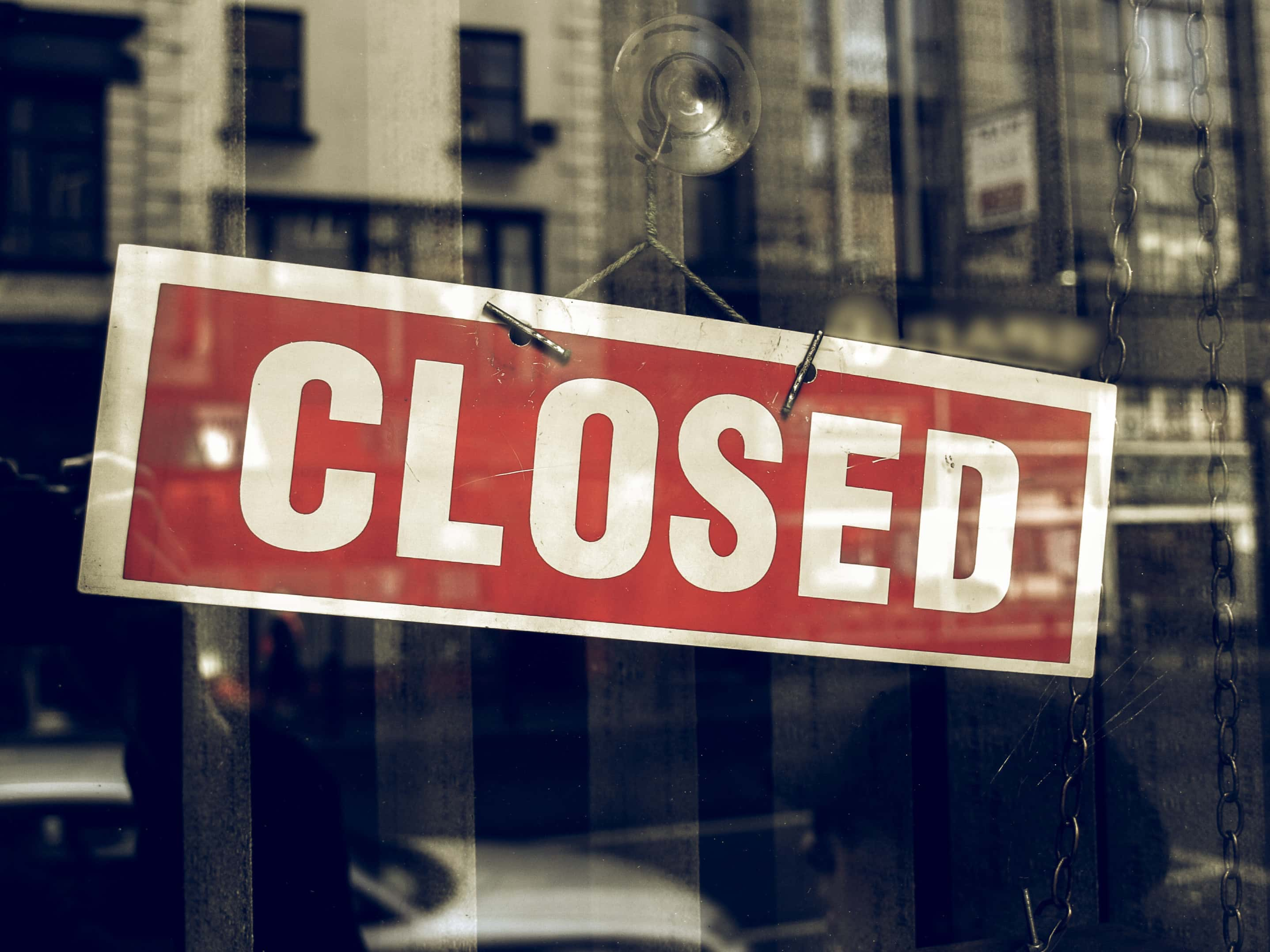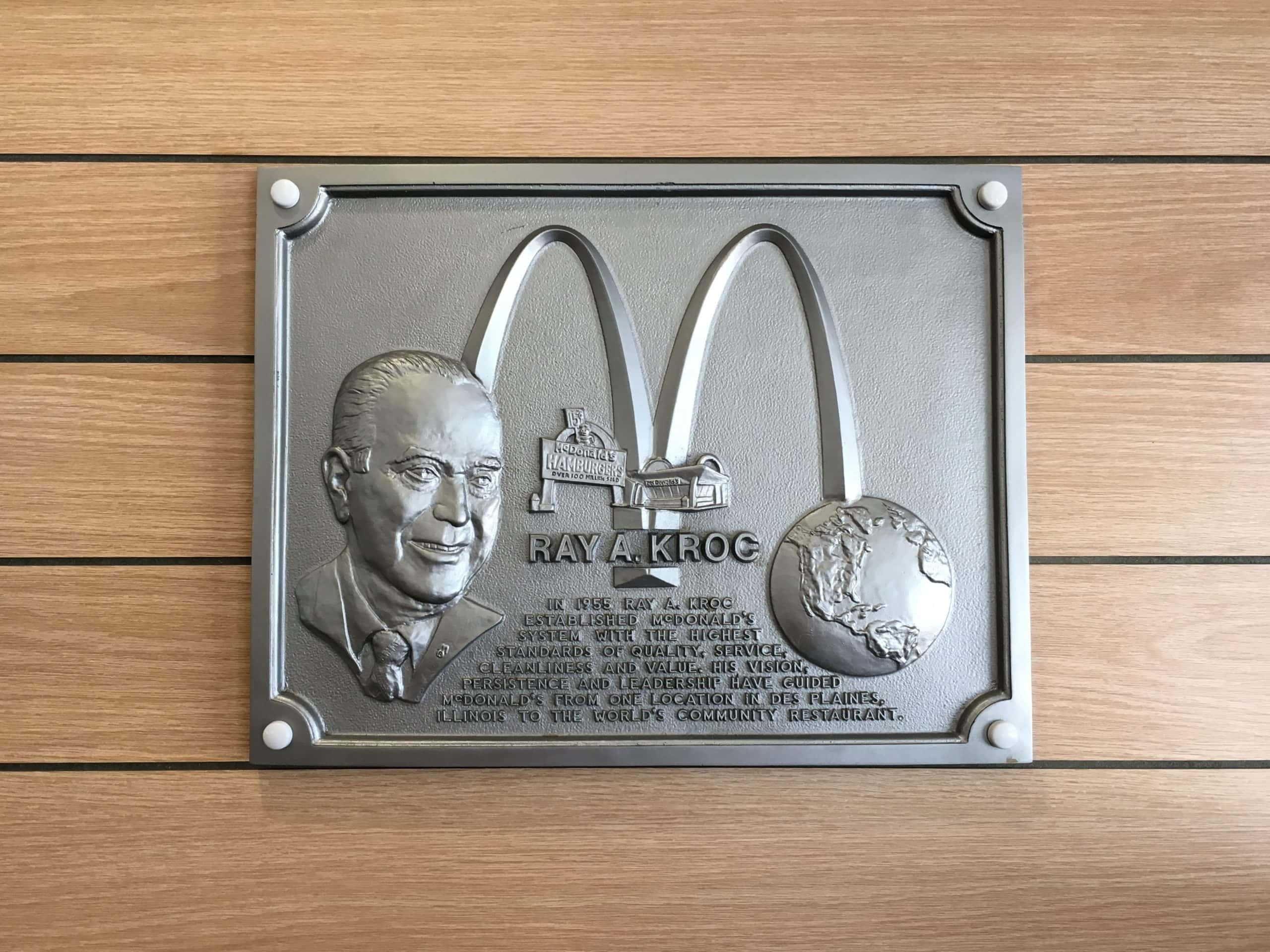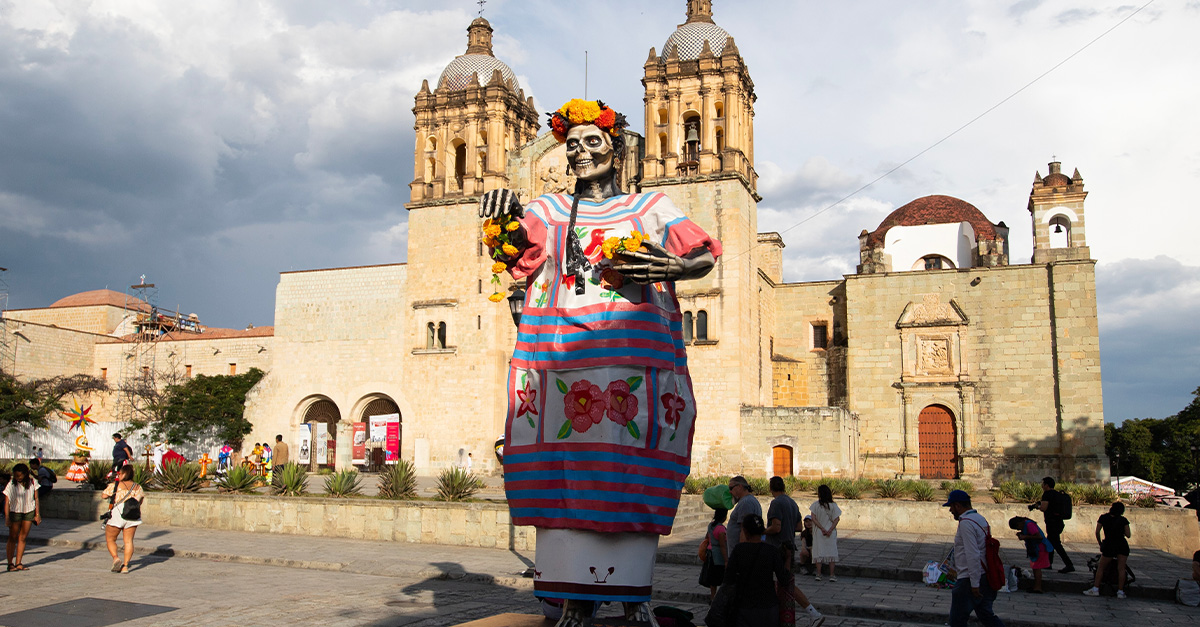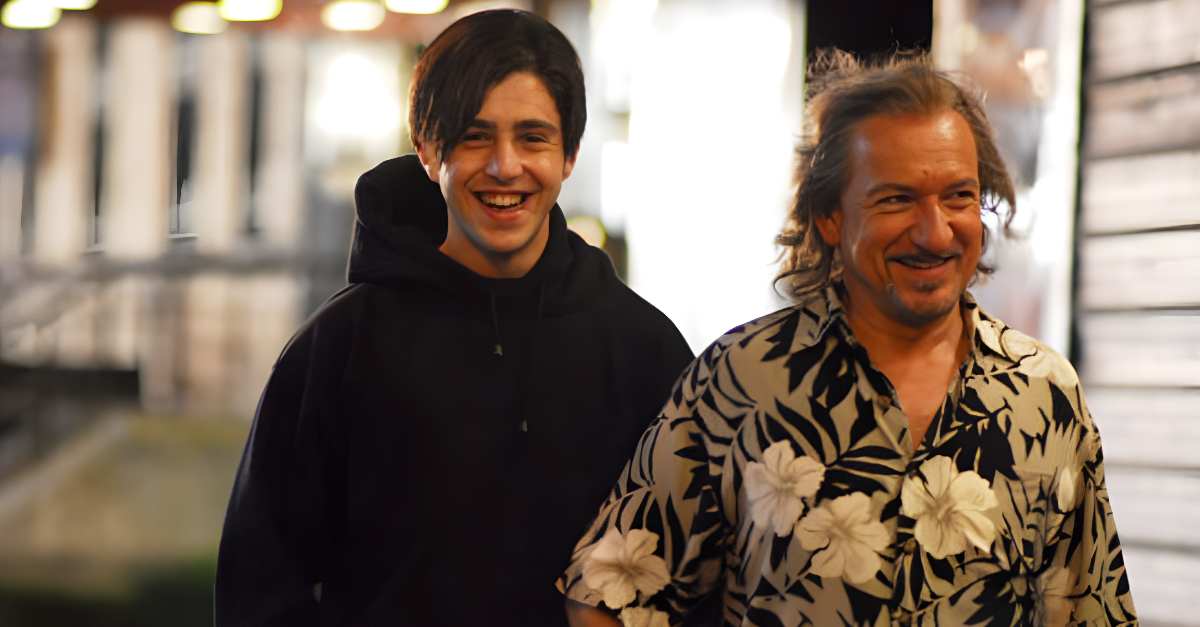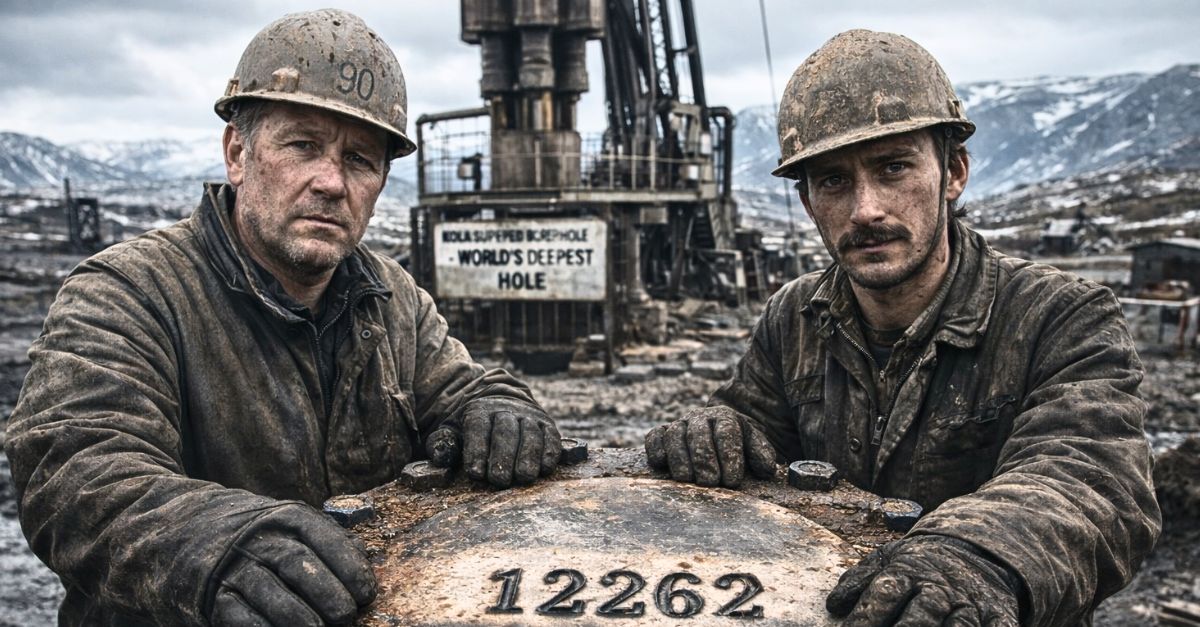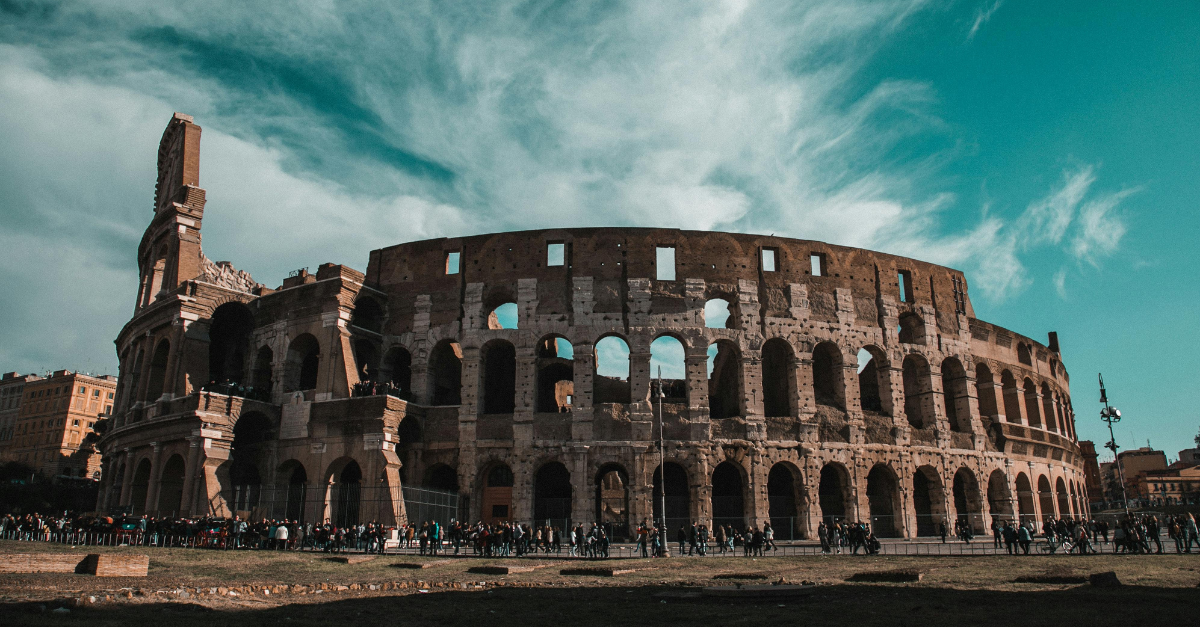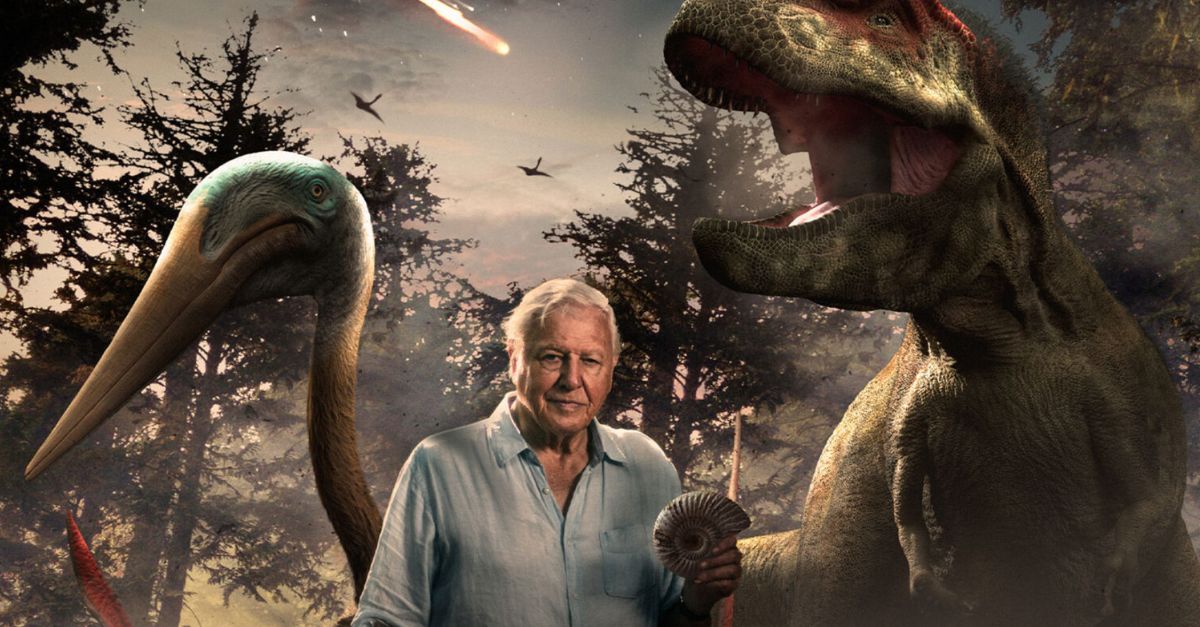"If you work just for money, you'll never make it, but if you love what you're doing and you always put the customer first, success will be yours".—Ray Kroc
The golden arches of McDonald’s are arguably more recognizable than the crucifix in today's day and age, and this is largely due to the work of Ray Kroc, known (falsely) as “The Founder” by the McDonald’s corporation. Kroc was responsible for taking the original, innovative McDonald’s restaurant chain and making it into a worldwide powerhouse of branding and industry. He was one of the most successful businessmen the world has ever seen, but he was a particular individual who fought for what he wanted in life, for better or for worse, and rewrote history in the process. But just like the company that he put his blood, sweat and tears into, there's a lot to love and a lot to hate about this complicated figure. Read on for 42 facts about his wild life and the rise of McDonald’s, the largest restaurant chain that the world has ever seen.
1. Long Time Coming
Ray Kroc took the long road to success, and it wasn’t until he was 52 years old that he finally hit it big with McDonald's and could enjoy the spoils of his capitalistic victory. Just goes to show, never give up, because success can come at any time if you just keep at it!
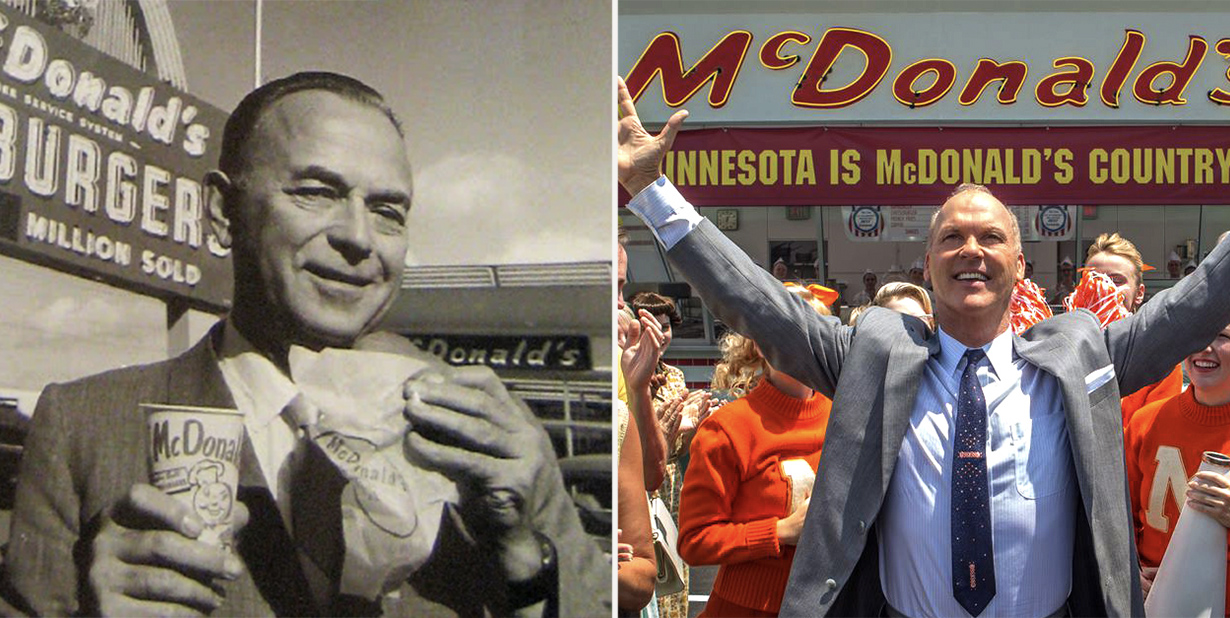
2. Smoke-Free Area
Kroc also didn't want any fun and games in his burger joints. He prohibited pinball and cig machines from being put into any McDonald’s location. That rule, at least, seems to have stuck.
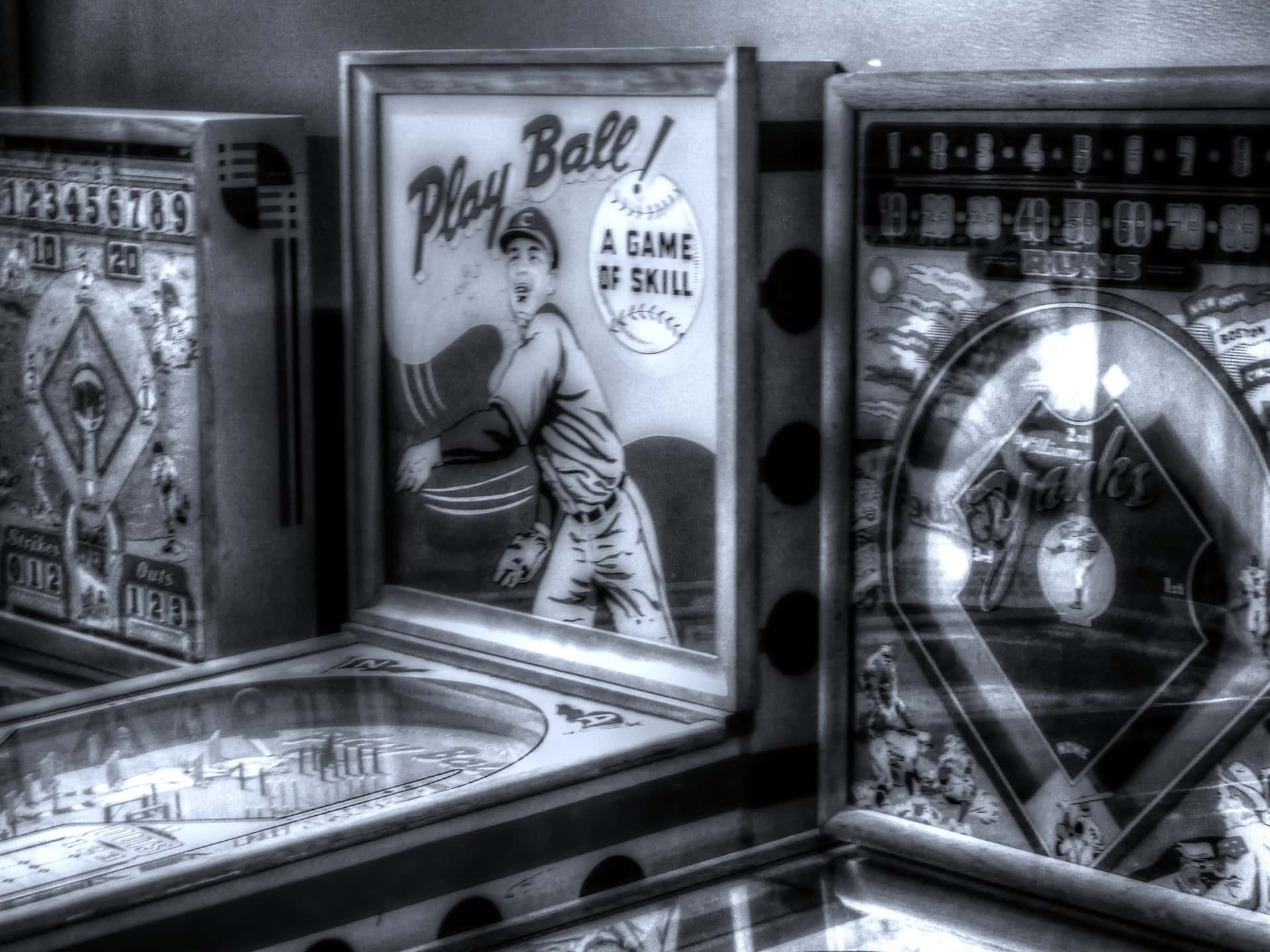 Public Domain Pictures
Public Domain Pictures
3. School Drools
As McDonald’s expanded, Kroc refused to hire any businessmen who had an MBA degree. He believed that college degrees did not teach proper competitive spirit and those who attended university were missing a certain marketing finesse. Hey, it appears to have worked out for him, so its hard to really argue his point.
4. Answer Your Own Darn Phone
If you served as an executive under Ray Kroc, you were not allowed to have a secretary. Kroc believed that executives should be more hands-on, and thus they were required to answer their own phone calls and reply to messages directly. Can you imagine? Those poor, poor millionaires!
5. Global Wealth
At the time of his death in 1984, Kroc was personally worth more than $600 million and McDonald’s was taking in $8 billion, globally, per year. If nothing else, the man knew how to make money.
6. Disappointment in the Team
As the owner of the San Diego Padres, Kroc was a heavily invested fan. During one game, while the Padres were losing, he jumped on the stadium microphone and riled up the crowd by announcing: “I’ve never seen such stupid ball-playing in my life". Hard to say if that would help or hurt the team's performance. The commissioner of the league tried to force Kroc to apologize for his outburst, but he never did.
7. Rely on Yourself
Kroc was a lifelong Republican, who definitely opposed all the New Deal programs set up by liberal politicians during his lifetime. He felt that government welfare should not exist as people should be self-reliant. At the very least, he certainly set a good example for this philosophy.
8. Aiding the Sick
Even though he didn’t believe in social welfare programs, Kroc still tried to support causes he believed in. He set up The Kroc Foundation in order to combat diabetes, alcoholism, and multiple sclerosis, among other medical conditions. This charity would eventually establish the Ronald McDonald House, which continues to improve the well-being of sick children everywhere to this day.
9. Helping Out Nixon
When Richard Nixon vetoed a minimum wage bill that was passing through Congress, Kroc was embroiled in controversy as many accused him of influencing the president with his money. To be fair, Kroc had contributed $255,000 to Nixon's reelection campaign before the bill came across the president's desk. Gotta say, that does look just a little suspicious...
10. Kroc-Like Businessmen
Famed for his aggressive style, if someone is acting like the Founder they are referred to as practicing “Kroc-style” business tactics. In 2004, Dire Straits icon Mark Knopfler even released a song about this, entitled “Boom, Like That". Knopfler has said that he was inspired to write the song after he read Kroc's biography.
11. Kroc, The Writer
Kroc was also a published author, and he co-wrote a successful 1977 self-help book called Grinding it Out with the goal of inspiring people to go out there and work hard for their dreams.
12. Anything to Serve
Kroc wanted to serve in World War I, but he had one problem: he was only 15 years old. But this is Ray Kroc we're talking about, and he wasn't about to let something like that stop him! He simply lied about his age, got training with the Red Cross, and was sent overseas in 1918 to serve as an ambulance driver in France as part of Ambulance Company A.
13. Walt and Ray
While training for the Red Cross, Ray Kroc met another soon-to-be famous native of Illinois: Walt Disney. Coincidentally, Disney had also lied about his age to serve in the War. Though they world work together in Ambulance Company A, they wouldn’t keep in touch after arriving back to the United States. That is until Kroc contacted Disney three decades later and asked him to put a McDonald’s in a Disney Theme park—an offer which Disney would decline, though the restaurant would eventually arrive in the Happiest Place On Earth a few decades later.
14. The Brothers McDonald
Now, after all we've heard about Ray Kroc, AKA the Founder, and how he built McDonald's into a business empire, one can be forgiven for thinking that he, you know, founded McDonald's. But in reality, the restaurant was created by brothers Richard and Maurice McDonald (makes sense) in 1937. It originally started as a drive-in restaurant specializing in barbecue in Arcadia, California. Kroc wouldn't hit the scene until nearly two decades later, despite the name that he would eventually give himself.
15. Make Things Easier
Though the original McDonald's restaurants were successful, the brothers felt that their service was too slow to really turn tables and customers, claiming that people had become impatient after World War II ended. This led them to shut down their restaurants in 1948 and completely retool their operation. They decided it would be easier to just focus on a few items: hamburgers, french fries, and soft drinks. Well... what else do you need?
16. Birth of a Salesman
Before striking it big with McDonald's, Kroc worked a variety of jobs, including a stint as a DJ and pianist with a radio station in Oak Park, Illinois. His main gig, however, was as a paper cup salesman. Glamorous, I know...
17. The Milkshake Man
Kroc was able to parlay his success as a paper cup salesman into selling milkshake machines. He sold these machines with the promise that they could mix up to five shakes at a time. This was a relatively lucrative business at the time, with each Multimixer machine costing $150, which was no chump change back in the day.
18. First Meeting
While he was selling Multimixer milkshake machines, Kroc did business with, you guessed it, the McDonald brothers. The brothers saw potential in him, as he was an aggressive and talented salesman, and the three struck up a business partnership that would change the fast-food industry forever.
19. Milkshake Money
As McDonald’s began making a name for itself, Kroc came up with the idea that these restaurants could strike gold if they were placed throughout the country, not just California. Of course, Kroc envisioned these McDonald’s all equipped with eight Multimix machines each—ever the salesman, this guy was.
20. Cheap Food
When Ray Kroc first visited a McDonald’s in 1954 it cost 15 cents for a hamburger, ten cents for french fries, and 20 cents for a milkshake. Talk about a value menu!
21. Franchise Ideas
Contrary to popular belief, Kroc did not originally propose the idea of franchising to the McDonald brothers. In reality, the brothers had already expanded to eight restaurants and licensed out 20 more franchises. However, that number would soon ramp up under Kroc.
22. Filling In
Though he didn’t create the idea of franchising restaurants, his first pitch to the McDonald brothers was that he join their operation as a franchising agent. This was after he learned that their previous agent had to step away from the work due to health concerns. Just think where McDonald's would be today if that agent had never gotten sick and Kroc had never taken his place...
23. The Corporation
Before there was the McDonald’s Corporation, there was the Franchise Realty Corporation. This business was founded by Kroc, and it greatly expanded the company's franchising operations. It would be these franchises that would end up creating some of the brand's most successful menu items over the years, including the Egg McMuffin, Big Mac, and Filet-O-Fish.
24. Fractured Family
As a man obsessed with work, Kroc’s relationship with his family was strained. His first wife opposed his decision to sell milkshake machines, and after he joined the McDonald’s operation his obsession only intensified. This led to his wife divorcing him in 1961, which also happened to be the year that he bought out the McDonald brothers' stakes in the company for a $2.7 million. Sounds like a lot of money, but something tells me that those stakes are worth just a little bit more today...
25. Lazy Business
The McDonald’s brothers didn’t really have a plan to expand their operation across the entire United States because they simply didn’t want to do it themselves—it would be a tremendous amount of work, after all. This is where Kroc came in with his pitch to do it for them.
26. The Padre of the Padres
Ray Kroc was a baseball fan, and he did a service to the city of San Diego that he is still remembered for today. In 1974, he purchased the San Diego Padres and disrupted their plans to move to Washington DC. I'm sure the people of San Diego were extremely thankful, although the team hasn't exactly found success in their SoCal home—and I'm sure Nationals fans would take their current team over the Padres any day of the week.
27. Hot Dog Bros
While the original McDonald’s was dedicated to BBQ, the brothers actually got into the food industry with something other than hamburgers; their first business venture was a hot dog stand located close to the Santa Anita racetrack in Arcadia, California.
28. For The Love of Music
Ray Kroc met his future wife, and McDonald’s heiress, Joan Kroc (née Mansfield) one day at a restaurant where she was playing the organ for customer entertainment. Kroc, a pianist himself, was enamored by Joan, not only because was she beautiful, but also because of her amazing ability as an organist. However, Joan was married to another restaurateur at the time who, in a twist of fate, actually bought a McDonald’s franchise himself! It would be 12 years before Ray and Joan finally got together—but they would remain married until Kroc's death in 1984.
29. The Philanthropist
Joan Kroc inherited boatloads of money after Ray passed on, and she used her vast fortune to fund research and organizations she believed in. Her $1.6 billion donation to the Salvation Army and her $235 million donation to National Public Radio helped both non-profit organizations survive rough times and greatly expand their operations.
30. Running a Tight Ship
The rapid success and efficiency of McDonald’s was largely due to Kroc, as he was the one who set in place strict codes of conduct for work ethic by introducing standardization and discipline to the company. This made Kroc the first person to introduce large-scale mass production to the service industry.
31. The Golden Signal
Something Kroc couldn’t actually take credit for, however, was the famous Golden Arches, as they was originally the idea of Richard McDonald. Richard also conceived of the idea to put the number of total burgers sold on the arches outside each location, though eventually that number got so huge it became pointless to keep track.
32. Workaholic
After taking over as the franchising agent, Kroc worked like a maniac in order to expand the operation. He was working so much that the McDonald brothers didn’t have to lift a finger, they simply got paid out of the franchising deal that Kroc himself made. They clearly made one heck of a deal with him.
33. The Money's in the Land
The main idea of the Franchise Realty Corporation was to make money without doing any actual burger flipping. After meeting a savvy lawyer, Kroc opened the corporation as a real estate company that would simply purchase land and charge McDonald’s franchises for their use. This rental fee was pricey, as it was either a standard rate if the sales weren’t great, or a percentage of the month's sales if things were going well—whichever cost more.
34. McDonald’s Strife
Despite Kroc's wild success, he and the McDonald brothers clashed over the years, until they'd simply had enough and let him buy out their stakes in the company. After the buyout, he would be president of the entire operation for 16 years, up until 1977. After stepping down from steering the ship, he took over as a senior chairman, so he still had a say in the company's operations despite "retiring".
35. Rewriting the Story
After he became the outright owner of McDonald’s, Kroc rewrote the restaurants' history and began preaching that he was the founder of it all and that his first McDonald’s in Des Plaines, Illinois was the original one, even though it was actually the ninth. First, ninth, what's the difference?
36. Ego Boost
For many years, McDonald’s celebrated “Founder’s Day” in which they would honor Ray Kroc as the “founder” of McDonald's. In defense of this, the company claims that while the brothers founded the concept and the original restaurant, Kroc was the one who actually founded the company of McDonald's. Suuuuure...
37. Ronald Had Too Many Burgers
The original Ronald McDonald premiered in 1963, but as Kroc and the corporation expanded the branding of their clown mascot across the country, they thought it would be too hard to find other actors with the same stocky build and heft of the original actor, Willard Scott. So, unfortunately for Scott, he ended up losing his gig and McDonald's established the skinny Ronald that we all know today.
38. Learning the Burger
Ray Kroc set up the prestigious “Hamburger University” for future employees of McDonald’s. Before one could purchase a franchise, an owner had to attend this school and get a degree “hamburgerology with a minor in french fries". Seriously.
39. Long Running Institution
Hamburger University is still going strong to this day, as there are now seven locations spread throughout four continents around the world. Over 275,000 people have graduated from the "prestigious" school since it opened in 1961. Believe it or not, the Shanghai campus accepts less than 1% of total applicants, making it more difficult to get into than any Ivy league school.
40. Have It All (Almost)
After his divorce from his first wife, Ethel, Kroc made a deal to give her just about everything he had, including $30,000 a year in alimony, the house, the car—all but his stake in McDonald’s, which of course would go on to make him filthy rich.
41. His Name Now
In the buyout contract, the McDonald’s brothers snuck in a clause that ensured they got to keep the original McDonald’s restaurant. After finding this out, a furious Kroc he forced the brothers to change the name of their restaurant to "The Big M," because he, and only he, owned the name of McDonald’s.
42. Non-friendly Competition
Changing the name of their restaurant wasn’t enough for Kroc. Even after they changed their restaurant's name, the McDonald’s brothers were doing alright for themselves. This was until Kroc went after them directly and opened up a new McDonald’s just one block away from their original fast-food joint. After six years of competition, the brothers finally closed their beloved original restaurant.
43. Revoking the Handshake
Kroc was a vindictive man. After the McDonald’s brothers refused to give up their original restaurant, Kroc got back at them by refusing to pay them their agreed upon royalties of 0.5 percent per year. By the time he stepped down from running McDonald’s in 1977, these royalties would have been valued at $15 million a year, and by 2012 they'd be worth as much as $305 million annually. That hurts.

